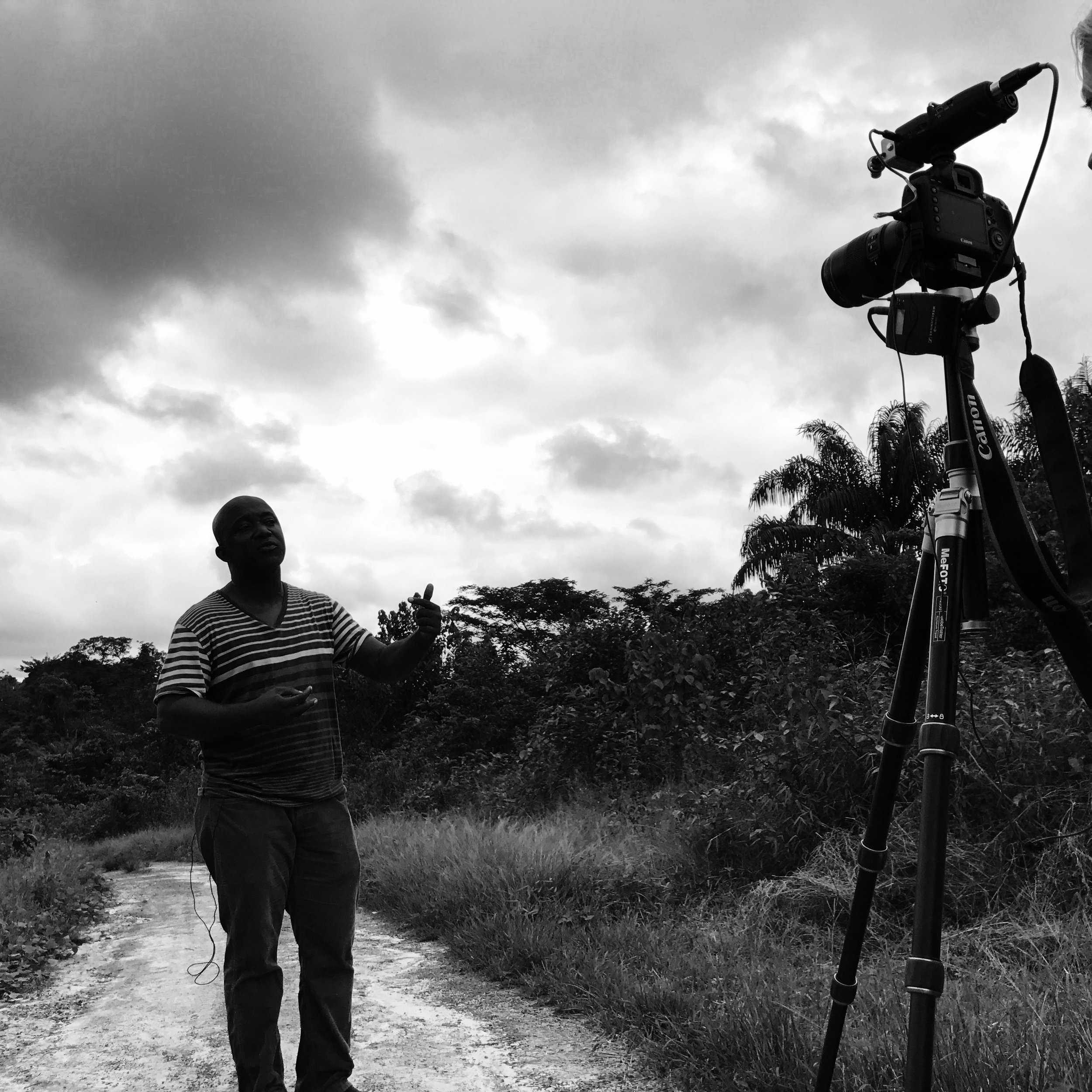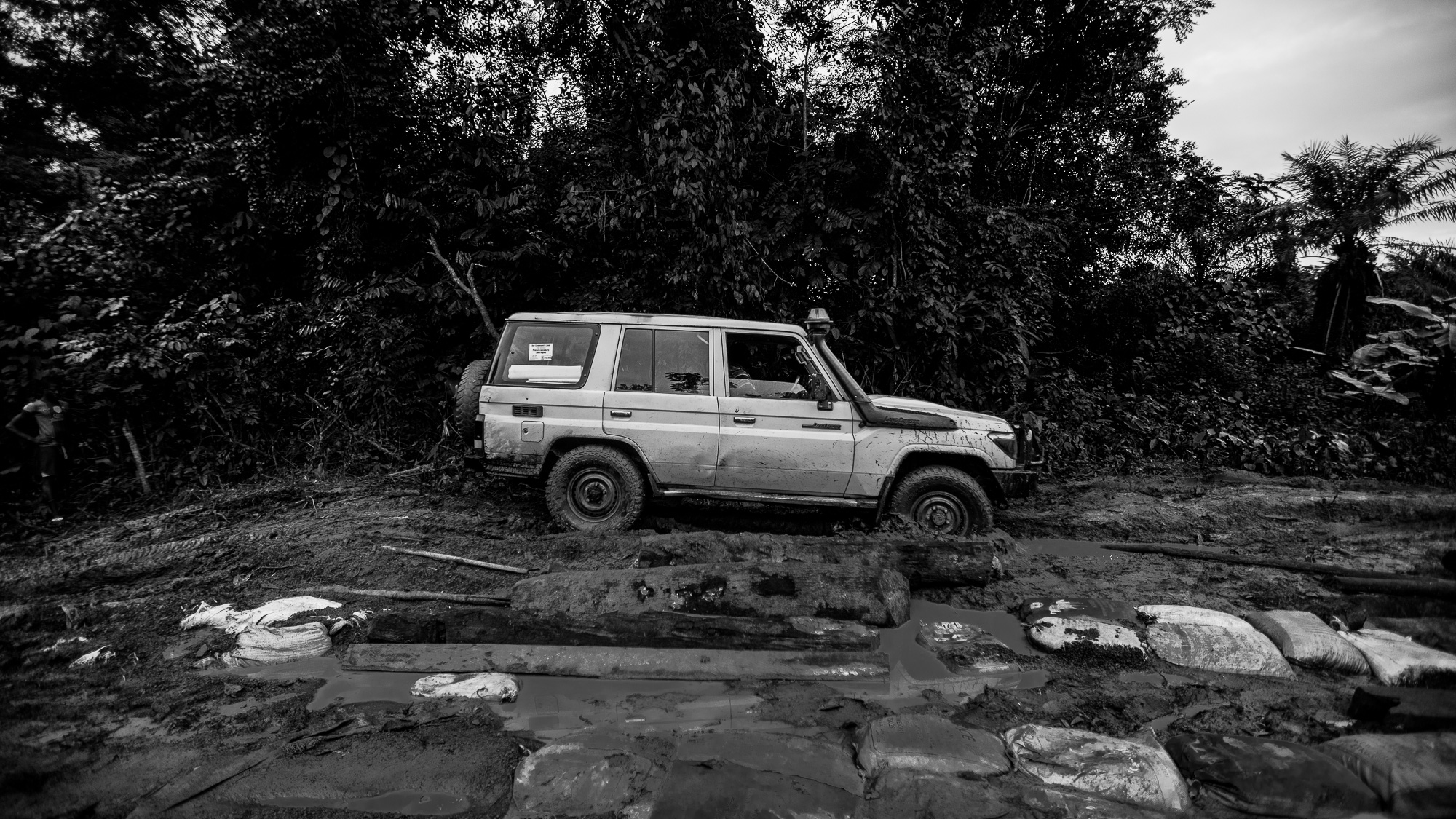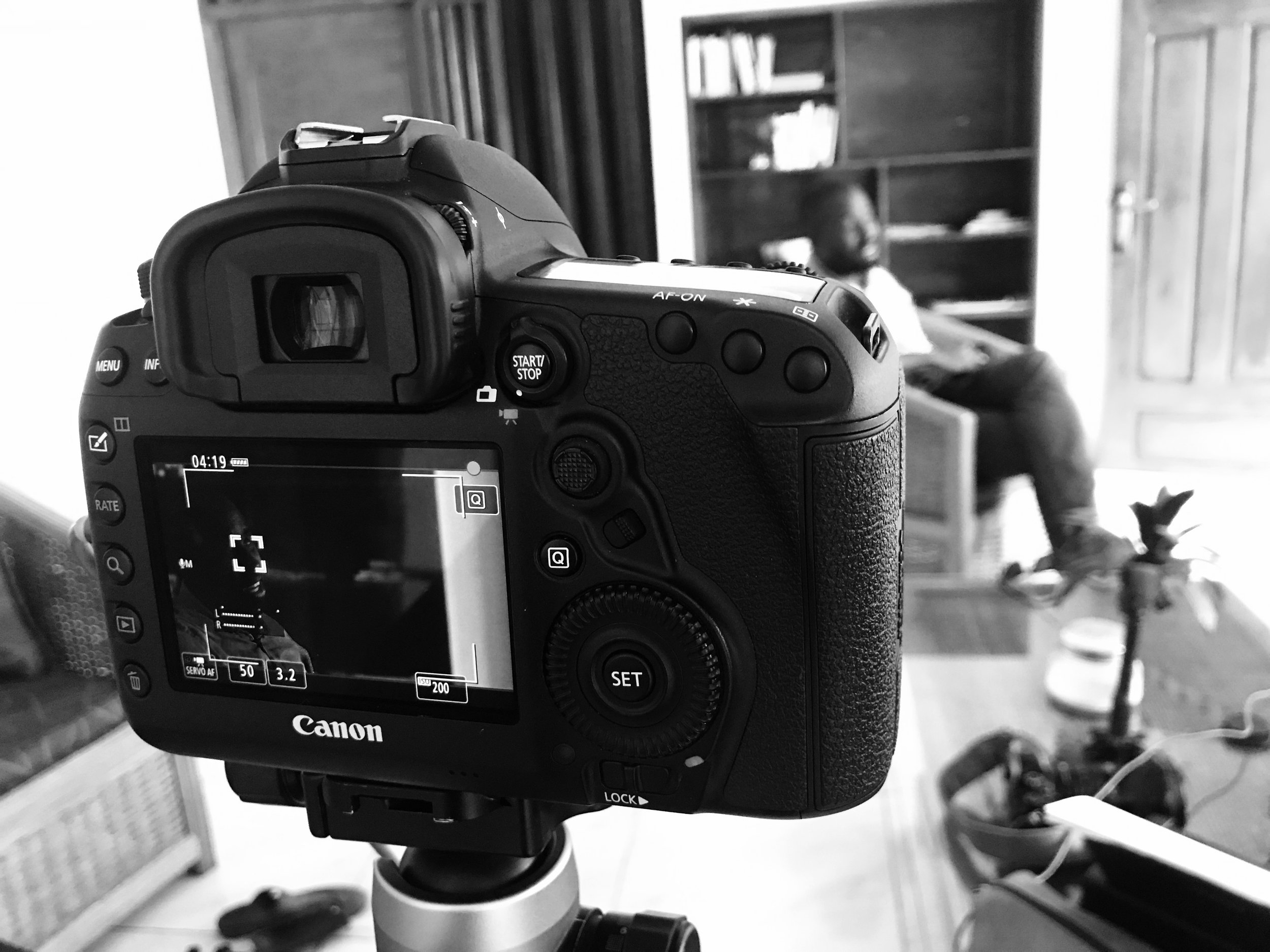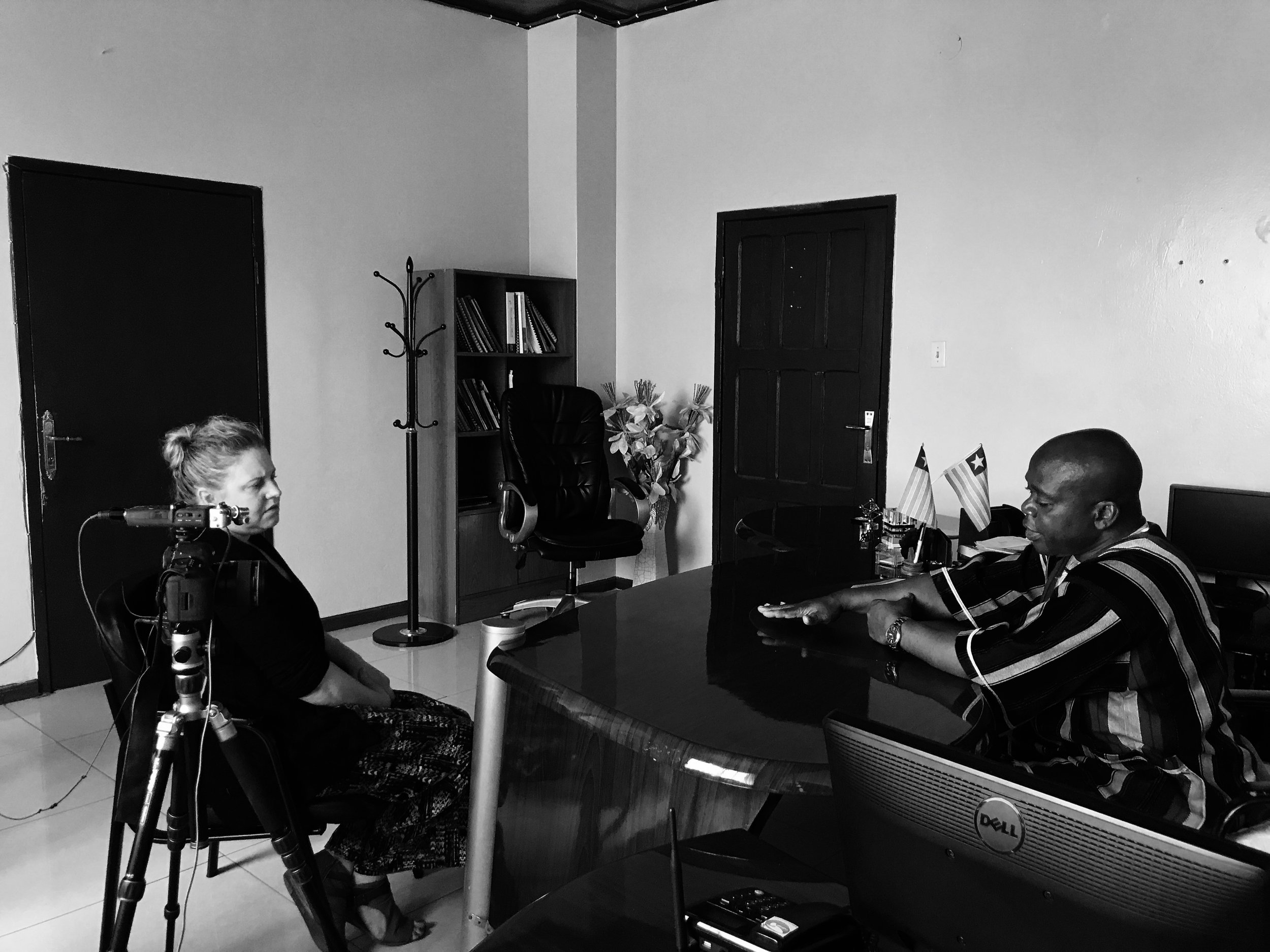
Overview: After the civil war in Liberia ended in 2003, the government started to bring back concessions to help the economy recover. Since this time, many foreign and national investors have taken advantage of the many resources the country has to offer. In 2011, Liberia joined the Open Government Partnership committing to a dialogue on land rights and mapping land concessions. Since this time, it has finished two action plans. The third one will begin after President Sirleaf or the incoming president signs it. Through ongoing collaborative efforts by civil society and the government, more and more communities are learning about their land and finding a voice in discussions and debates about how to best move forward.
Goal: In 2013, The Land Rights Act was introduced. If passed, it would legally recognize communities’ rights to their land. It also establishes safeguards to reduce discrimination against women and other vulnerable groups – who are often disproportionately affected by social and cultural barriers to using and owning land.
Our objective was to show how an open government helps provide communities with information they need in order to have a conversation about land rights.
Challenges: The week we filmed ended up coinciding with the passing of Land Rights Act. Although the decision was postponed, many of the people who we would have liked to be featured in our film were busy working on getting the bill passed. This made it hard to secure interviews and additional b-roll. After reaching out to different organizations, we were put in touch with a SDI employee who had worked with the Jogbahn community. After contacting him, we found out that he would be visiting the area the next day. The timing worked to our advantage since one team member had to leave early for another assignment. We traveled that evening to stay overnight in Buchanan, an hour and a half away, and woke up the next morning before dawn to film members of the community. We finished in the afternoon, providing just enough time to get to the airport so the team member could travel to the next assignment.
Client: Open Government Partnership
Subject: Land Rights
Location: Liberia
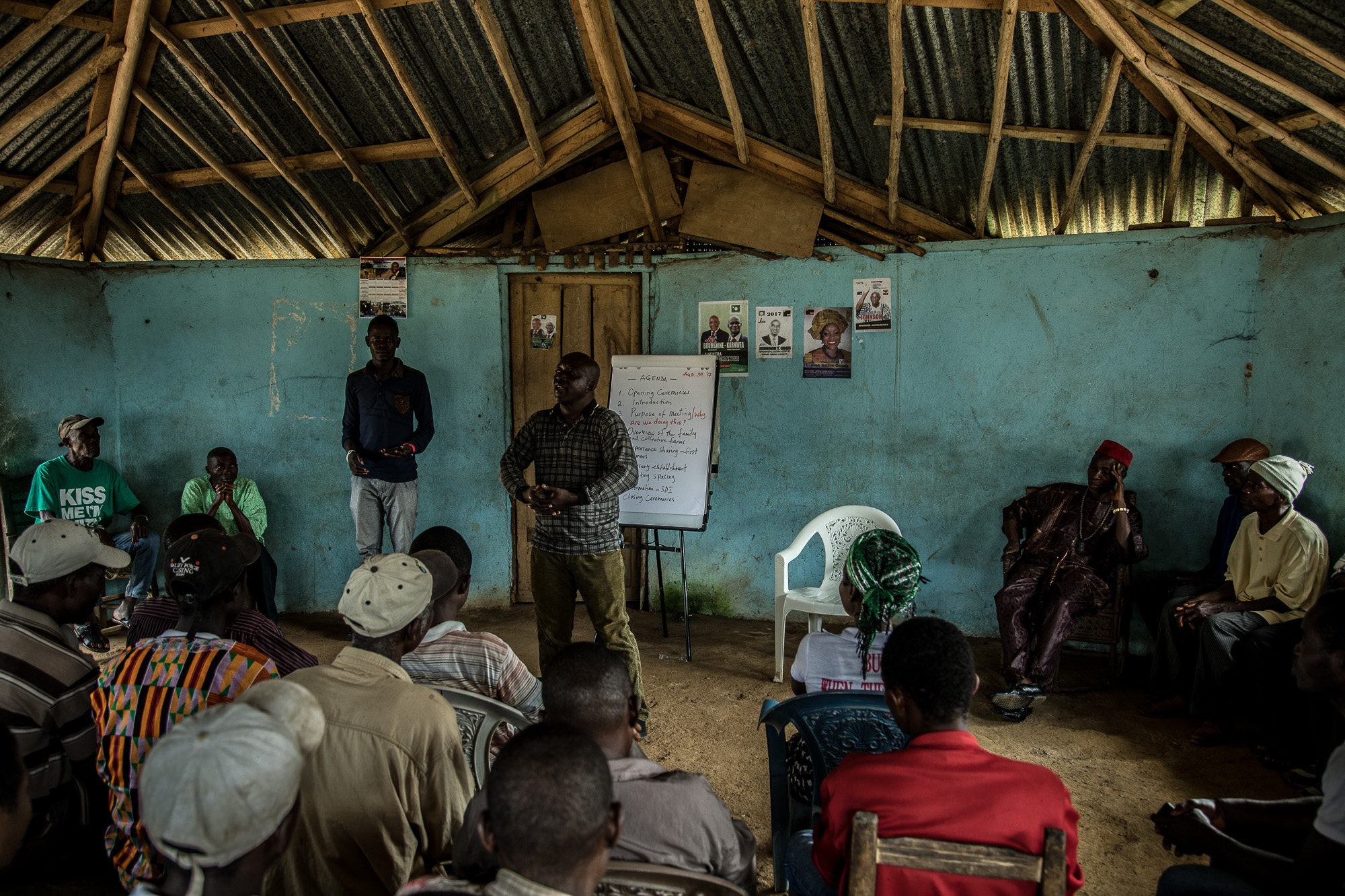
James Otto, of Sustainable Development Institute (SDI), teaches members of the Jogbahn Clan about land rights. The Jogbahn Clan fought against the British-owned company Equatorial Palm Oil (EPO) when they tried to take over their land in 2013. The people in the community depend on the land for their livelihoods. The Sustainable Development Institute (SDI) started to help the community by submitting a formal complaint to the to the Roundtable on Sustainable Palm Oil (RSPO). SDI taught the clan about land rights and resisting with non-violence. THE RSPO determined that the land EPO was using belonged to the clan. SGI trained the community how to map their land and boundaries were created that EPO accepted not to cross. Photo by Morgana Wingard
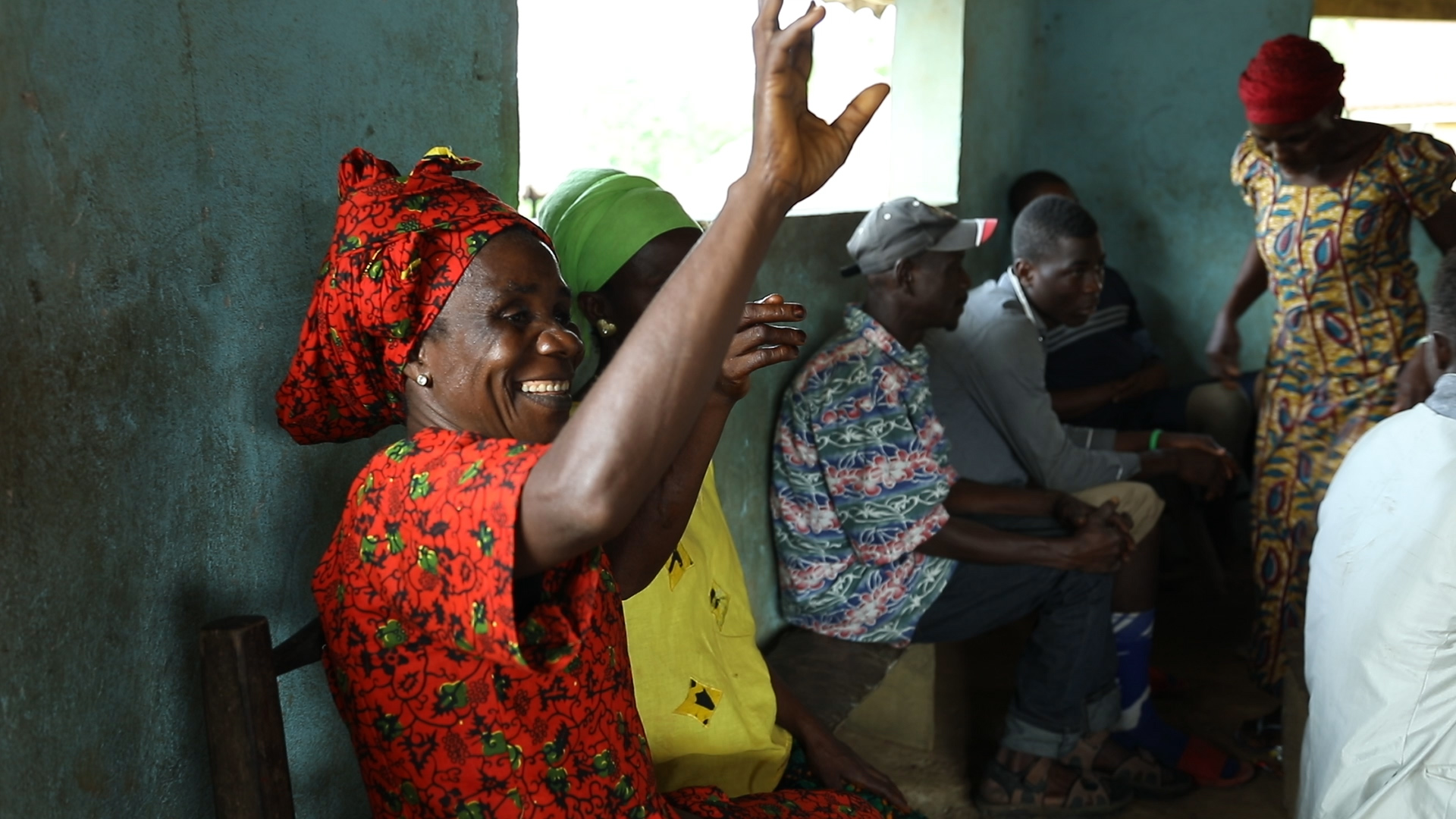
A woman from the the Jogbahn Clan participates in a workshop held by the Sustainable Development Institute (SDI) on Wednesday, Aug. 30. The Jogbahn Clan fought against the British-owned company Equatorial Palm Oil (EPO) when they tried to take over their land in 2013. The people in the community depend on the land for their livelihoods. SDI started to help the community by submitting a formal complaint to the to the Roundtable on Sustainable Palm Oil (RSPO). SDI taught the clan about land rights and resisting with non-violence. THE RSPO determined that the land EPO was using belonged to the clan. SGI trained the community how to map their land and boundaries were created that EPO accepted not to cross.
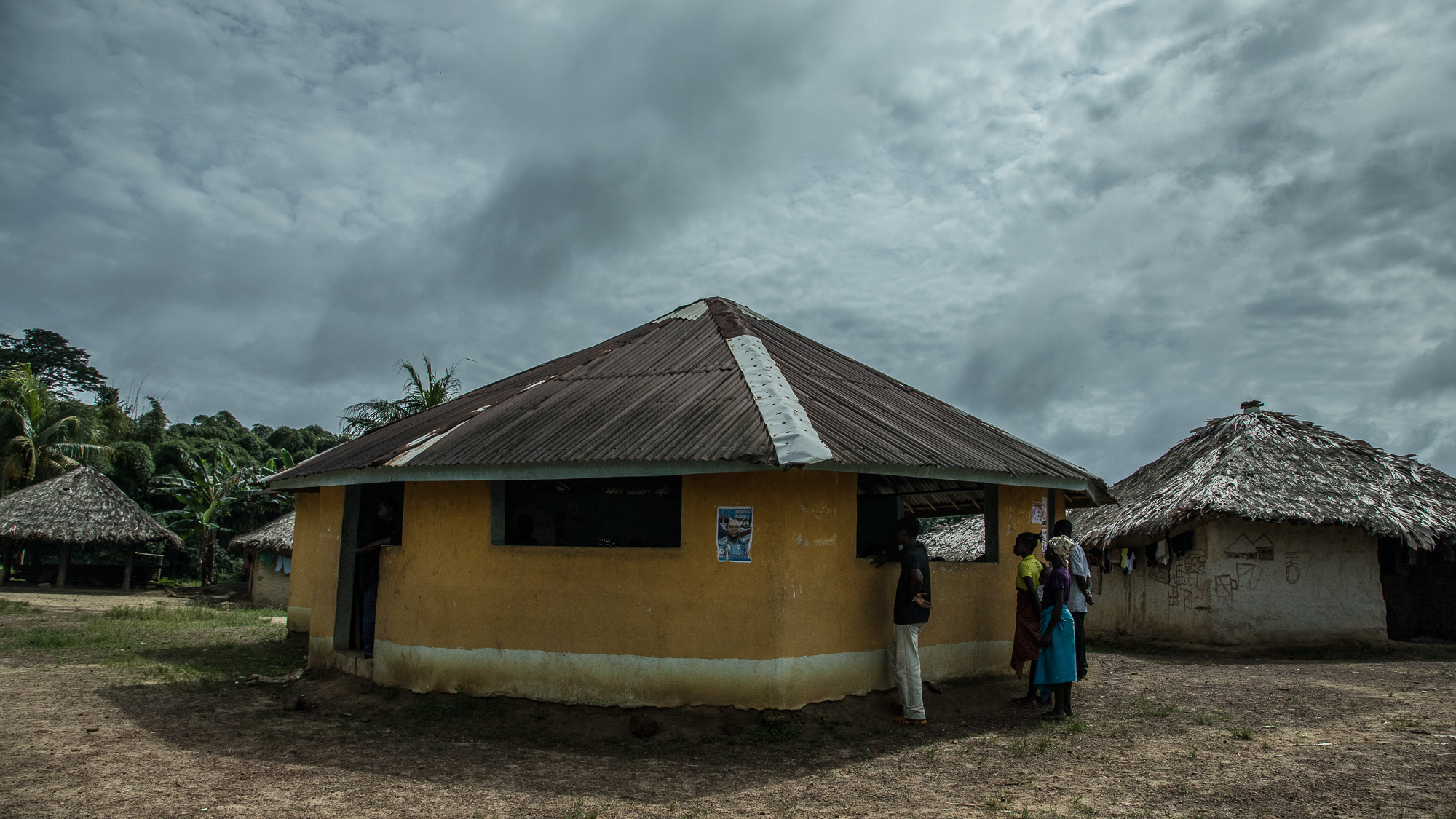
Jogbahn Clan members gather for a meeting with James Otto, of Sustainable Development Institute (SDI). The Jogbahn Clan fought against the British-owned company Equatorial Palm Oil (EPO) when they tried to take over their land in 2013. The people in the community depend on the land for their livelihoods. The Sustainable Development Institute (SDI) started to help the community by submitting a formal complaint to the to the Roundtable on Sustainable Palm Oil (RSPO). SDI taught the clan about land rights and resisting with non-violence. THE RSPO determined that the land EPO was using belonged to the clan. SGI trained the community how to map their land and boundaries were created that EPO accepted not to cross. Photo by Morgana WingardThe Jogbahn Clan fought against the British-owned company Equatorial Palm Oil (EPO) when they tried to take over their land in 2013. The people in the community depend on the land for their livelihoods. The Sustainable Development Institute (SDI) started to help the community by submitting a formal complaint to the to the Roundtable on Sustainable Palm Oil (RSPO). SDI taught the clan about land rights and resisting with non-violence. THE RSPO determined that the land EPO was using belonged to the clan. SGI trained the community how to map their land and boundaries were created that EPO accepted not to cross. Photo by Morgana Wingard
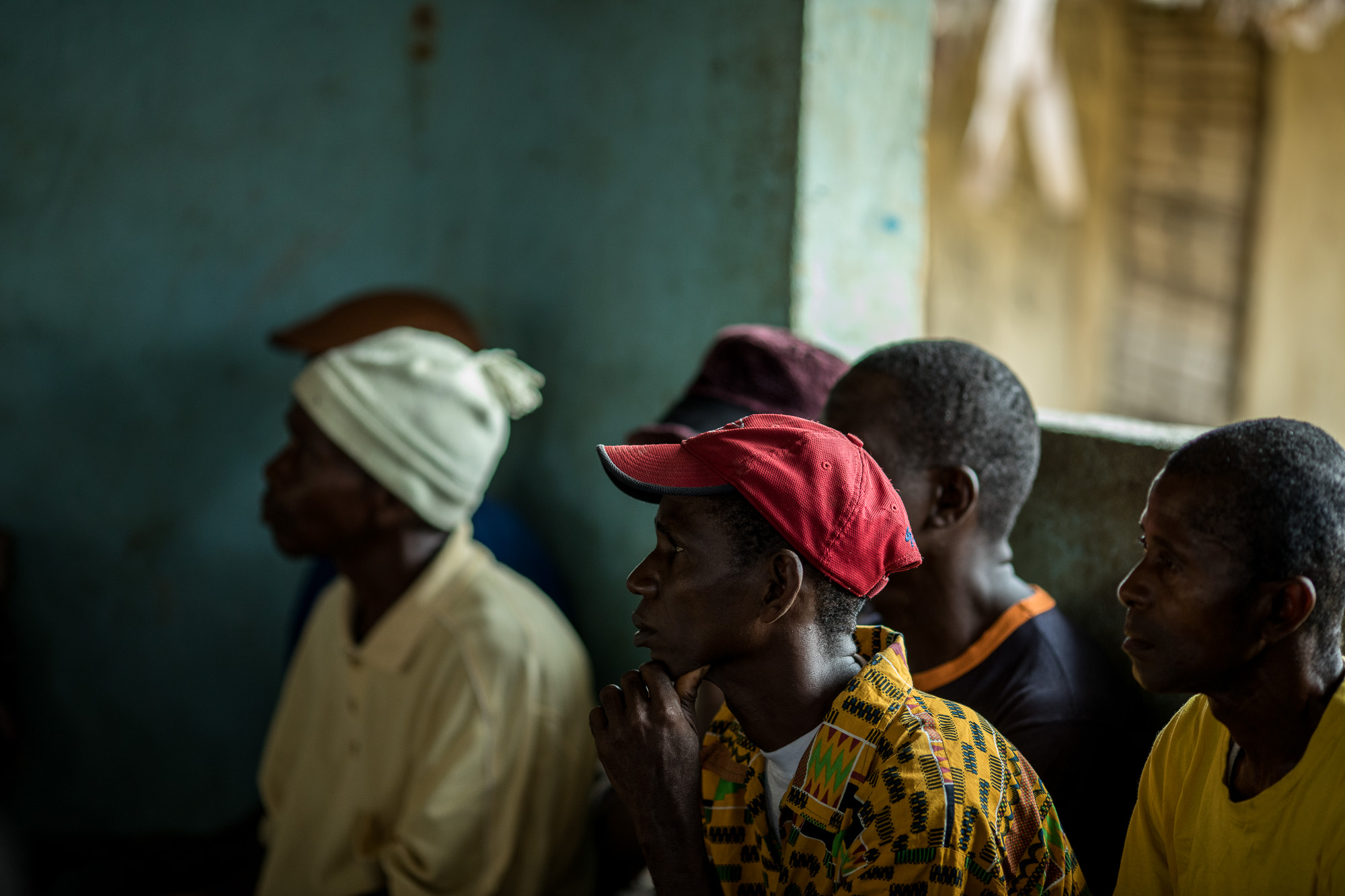
The Jogbahn Clan fought against the British-owned company Equatorial Palm Oil (EPO) when they tried to take over their land in 2013. The people in the community depend on the land for their livelihoods. The Sustainable Development Institute (SDI) started to help the community by submitting a formal complaint to the to the Roundtable on Sustainable Palm Oil (RSPO). SDI taught the clan about land rights and resisting with non-violence. THE RSPO determined that the land EPO was using belonged to the clan. SGI trained the community how to map their land and boundaries were created that EPO accepted not to cross. Photo by Morgana Wingard
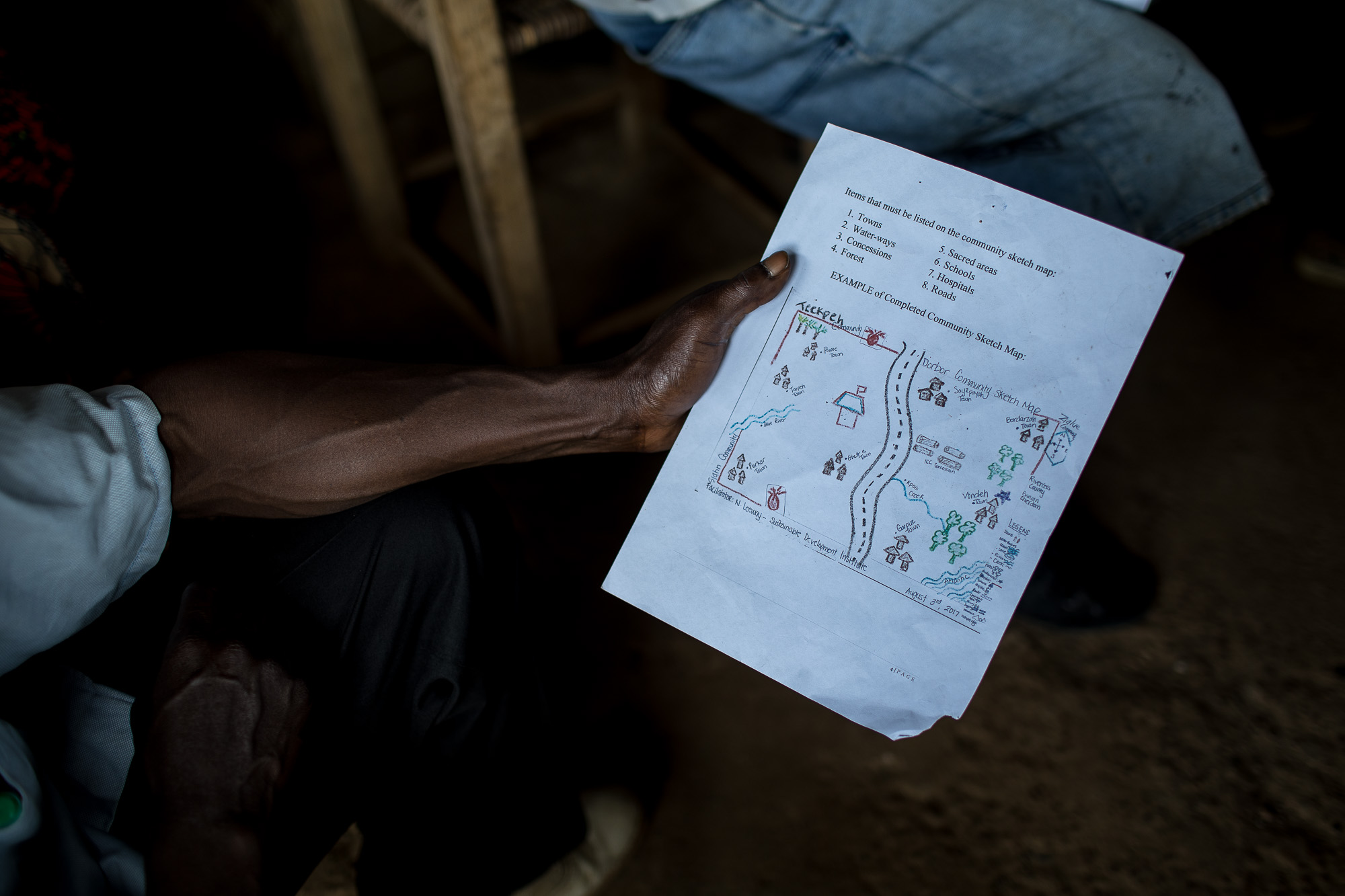
The Jogbahn Clan fought against the British-owned company Equatorial Palm Oil (EPO) when they tried to take over their land in 2013. The people in the community depend on the land for their livelihoods. The Sustainable Development Institute (SDI) started to help the community by submitting a formal complaint to the to the Roundtable on Sustainable Palm Oil (RSPO). SDI taught the clan about land rights and resisting with non-violence. THE RSPO determined that the land EPO was using belonged to the clan. SGI trained the community how to map their land and boundaries were created that EPO accepted not to cross. Photo by Morgana Wingard
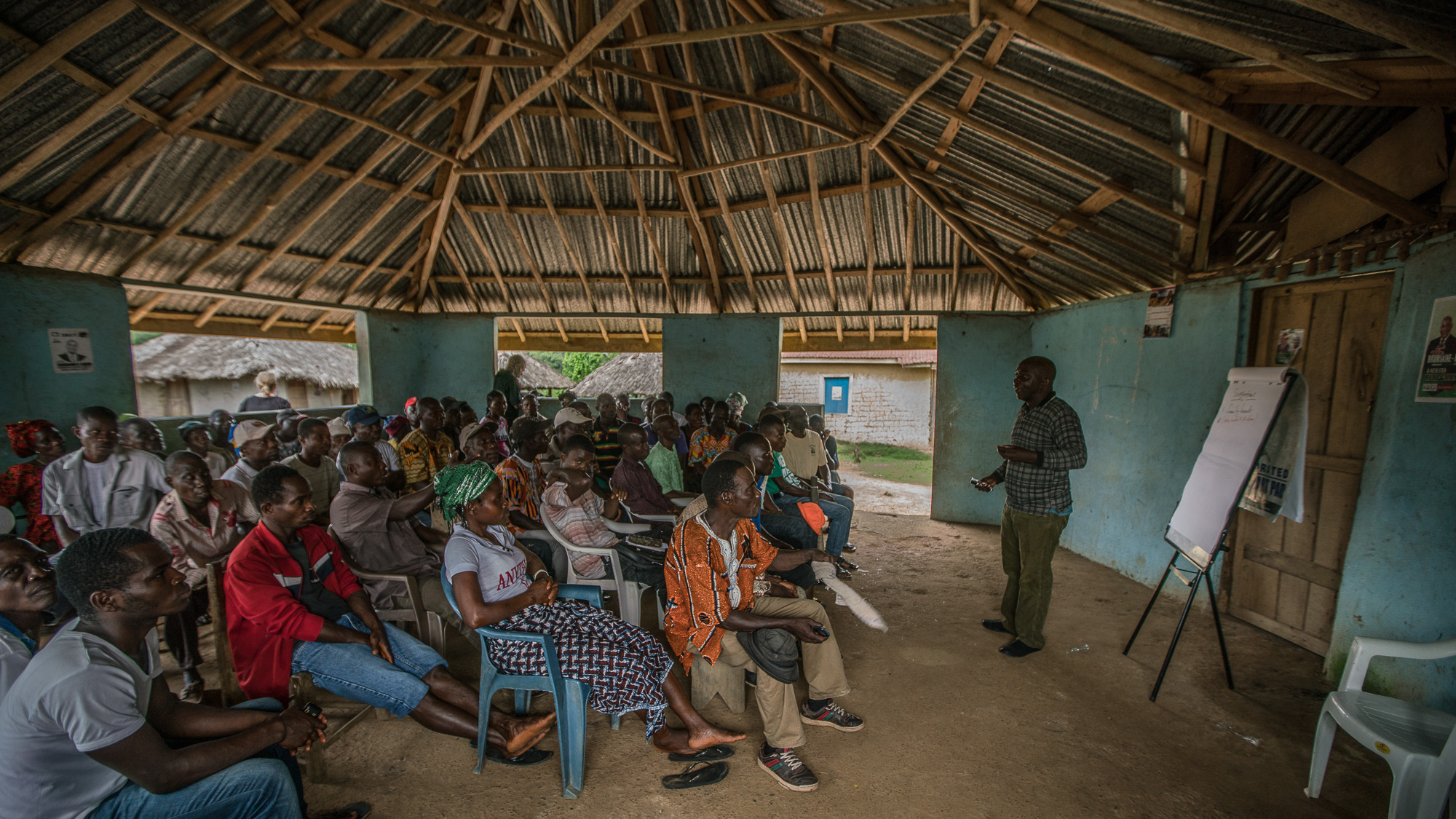
James Otto, of Sustainable Development Institute (SDI), teaches members of the Jogbahn Clan about land rights. The Jogbahn Clan fought against the British-owned company Equatorial Palm Oil (EPO) when they tried to take over their land in 2013. The people in the community depend on the land for their livelihoods. The Sustainable Development Institute (SDI) started to help the community by submitting a formal complaint to the to the Roundtable on Sustainable Palm Oil (RSPO). SDI taught the clan about land rights and resisting with non-violence. THE RSPO determined that the land EPO was using belonged to the clan. SGI trained the community how to map their land and boundaries were created that EPO accepted not to cross. Photo by Morgana Wingard
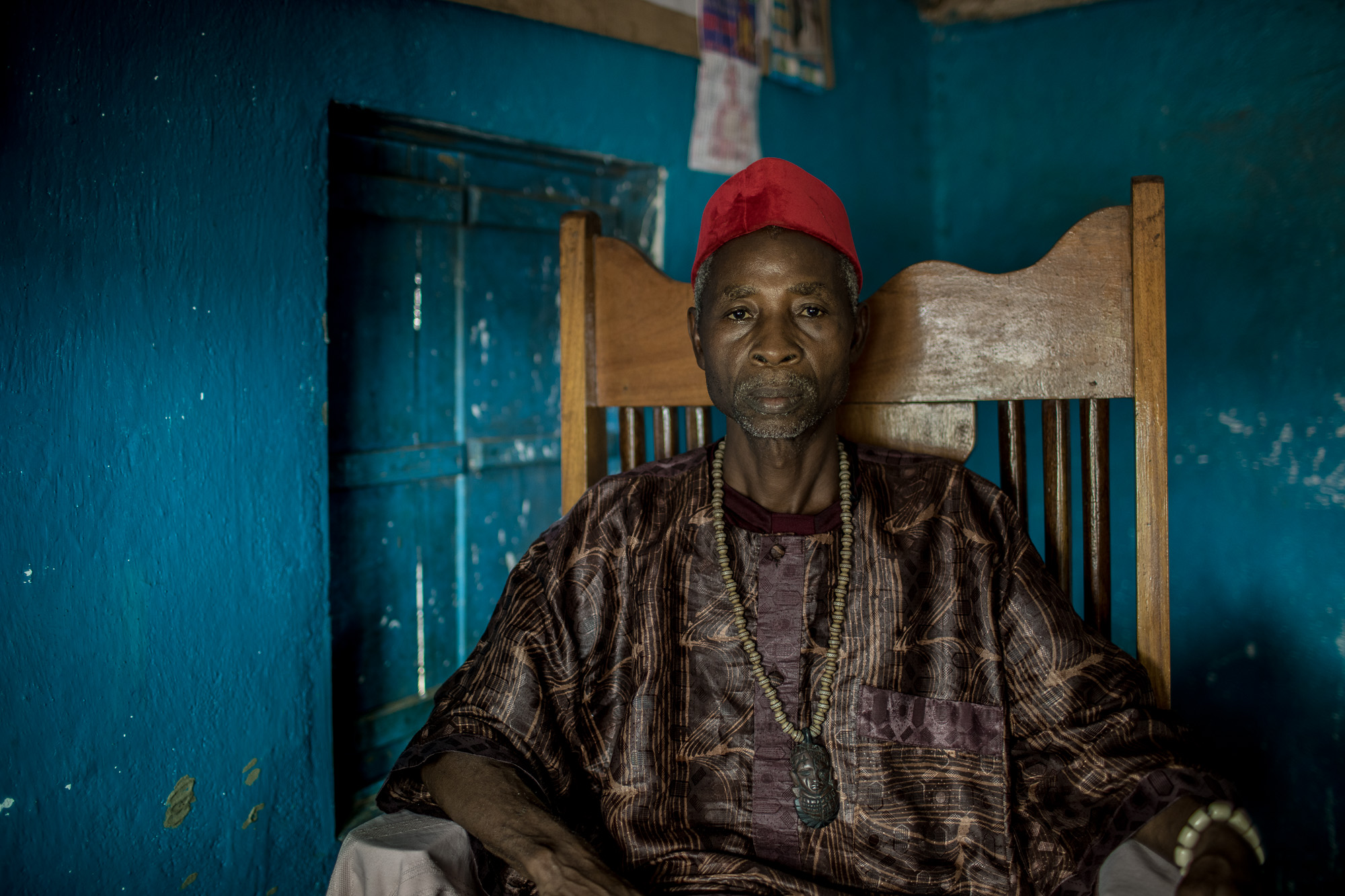
Cheo Johnson, chief of the Jogbahn Clan, poses for a photo. The Jogbahn Clan fought against the British-owned company Equatorial Palm Oil (EPO) when they tried to take over their land in 2013. The people in the community depend on the land for their livelihoods. The Sustainable Development Institute (SDI) started to help the community by submitting a formal complaint to the to the Roundtable on Sustainable Palm Oil (RSPO). SDI taught the clan about land rights and resisting with non-violence. THE RSPO determined that the land EPO was using belonged to the clan. SGI trained the community how to map their land and boundaries were created that EPO accepted not to cross. Photo by Morgana Wingard.
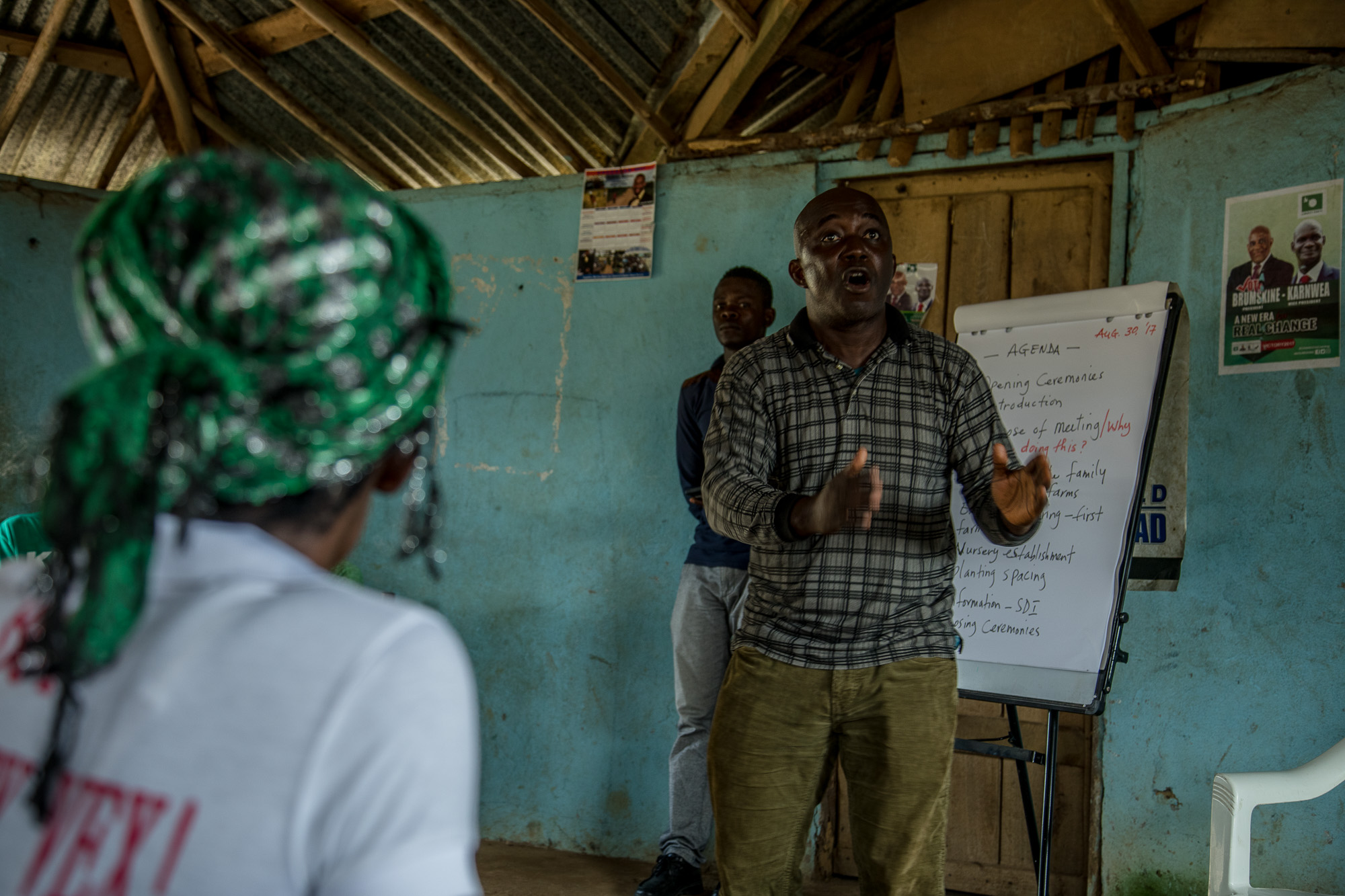
James Otto, of Sustainable Development Institute (SDI), teaches members of the Jogbahn Clan about land rights. The Jogbahn Clan fought against the British-owned company Equatorial Palm Oil (EPO) when they tried to take over their land in 2013. The people in the community depend on the land for their livelihoods. The Sustainable Development Institute (SDI) started to help the community by submitting a formal complaint to the to the Roundtable on Sustainable Palm Oil (RSPO). SDI taught the clan about land rights and resisting with non-violence. THE RSPO determined that the land EPO was using belonged to the clan. SGI trained the community how to map their land and boundaries were created that EPO accepted not to cross. Photo by Morgana Wingard
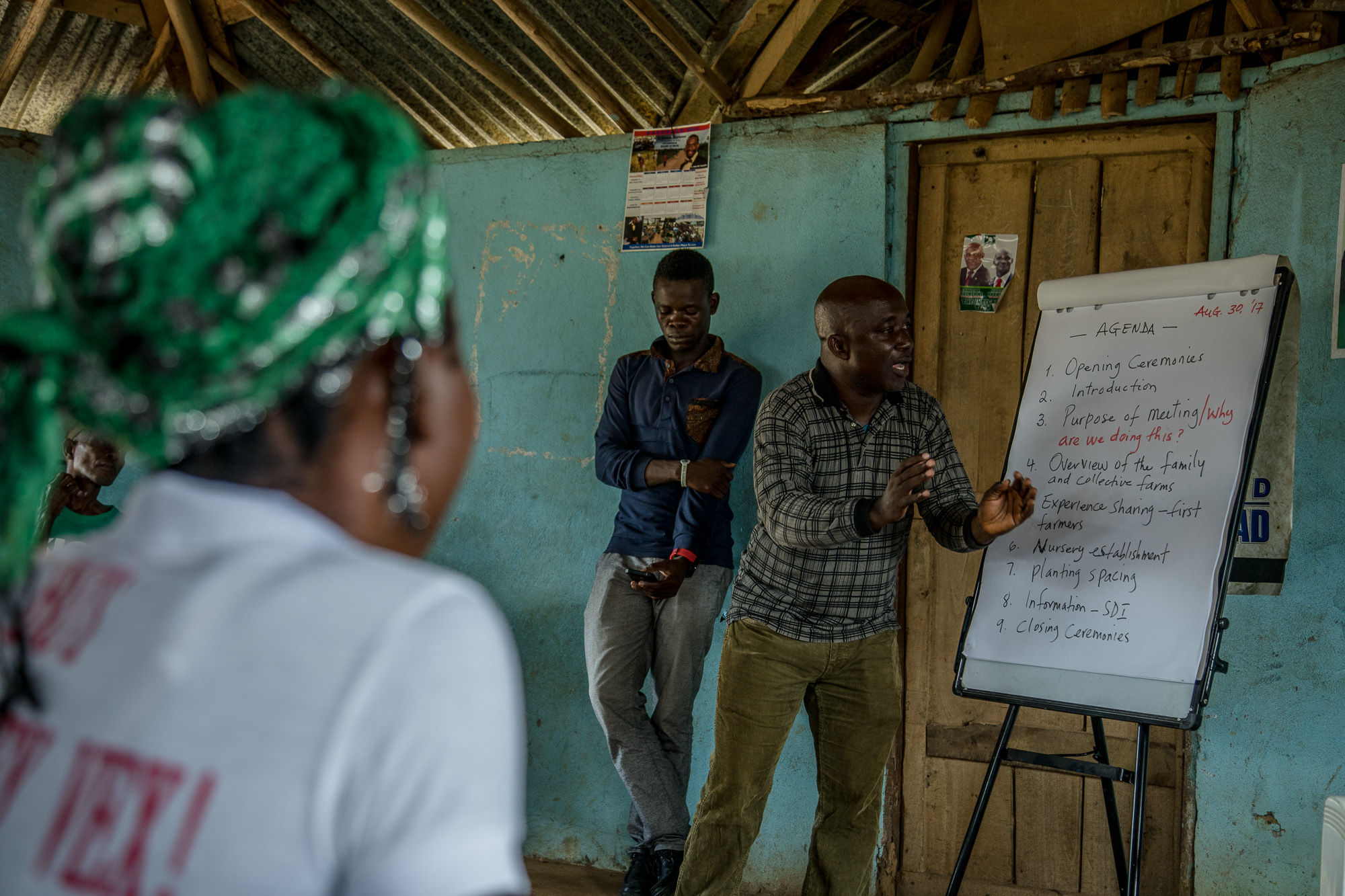
James Otto, of Sustainable Development Institute (SDI), teaches members of the Jogbahn Clan about land rights. The Jogbahn Clan fought against the British-owned company Equatorial Palm Oil (EPO) when they tried to take over their land in 2013. The people in the community depend on the land for their livelihoods. The Sustainable Development Institute (SDI) started to help the community by submitting a formal complaint to the to the Roundtable on Sustainable Palm Oil (RSPO). SDI taught the clan about land rights and resisting with non-violence. THE RSPO determined that the land EPO was using belonged to the clan. SGI trained the community how to map their land and boundaries were created that EPO accepted not to cross. Photo by Morgana Wingard
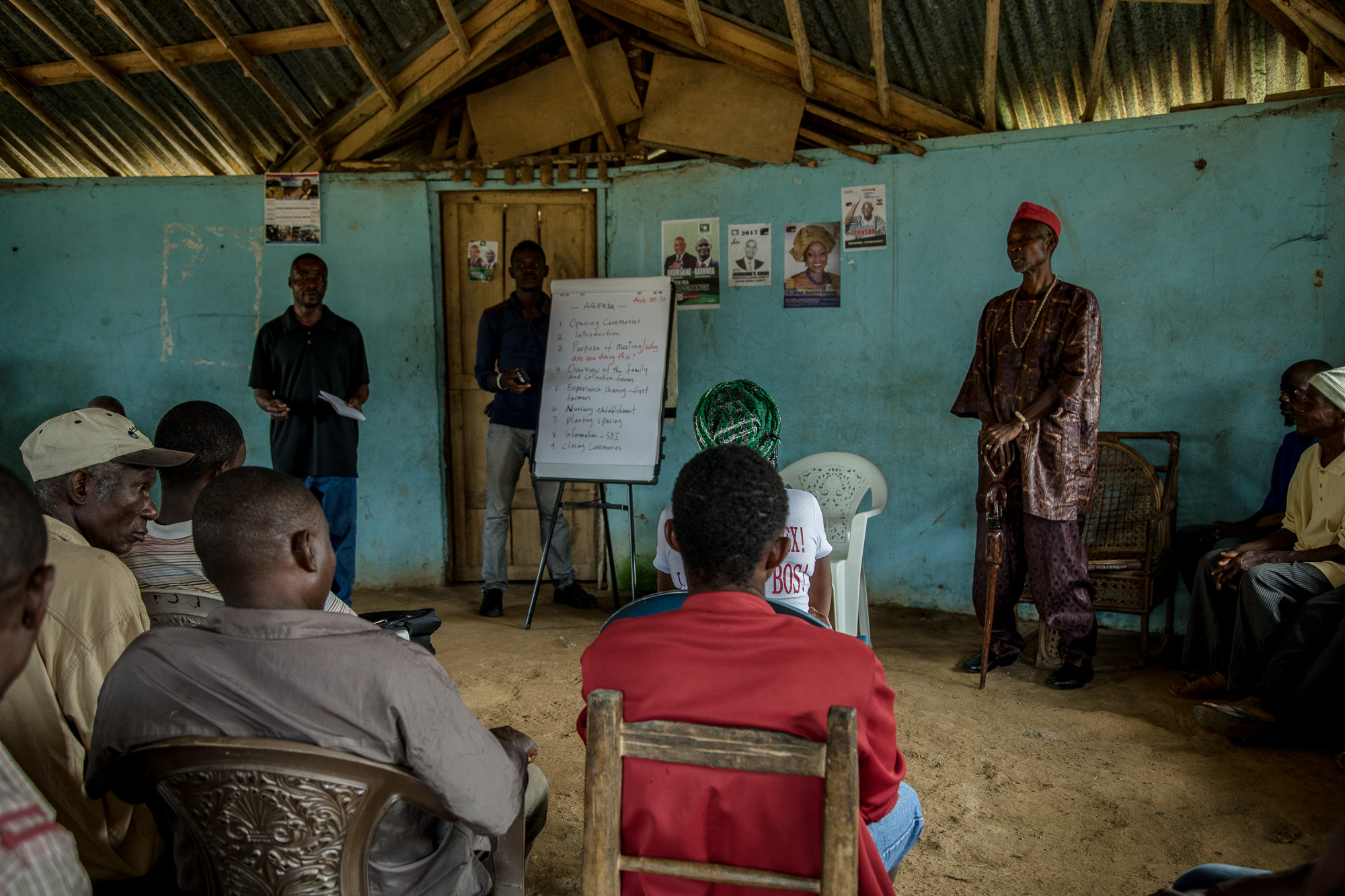
James Otto, of Sustainable Development Institute (SDI), teaches members of the Jogbahn Clan about land rights. The Jogbahn Clan fought against the British-owned company Equatorial Palm Oil (EPO) when they tried to take over their land in 2013. The people in the community depend on the land for their livelihoods. The Sustainable Development Institute (SDI) started to help the community by submitting a formal complaint to the to the Roundtable on Sustainable Palm Oil (RSPO). SDI taught the clan about land rights and resisting with non-violence. THE RSPO determined that the land EPO was using belonged to the clan. SGI trained the community how to map their land and boundaries were created that EPO accepted not to cross. Photo by Morgana Wingard
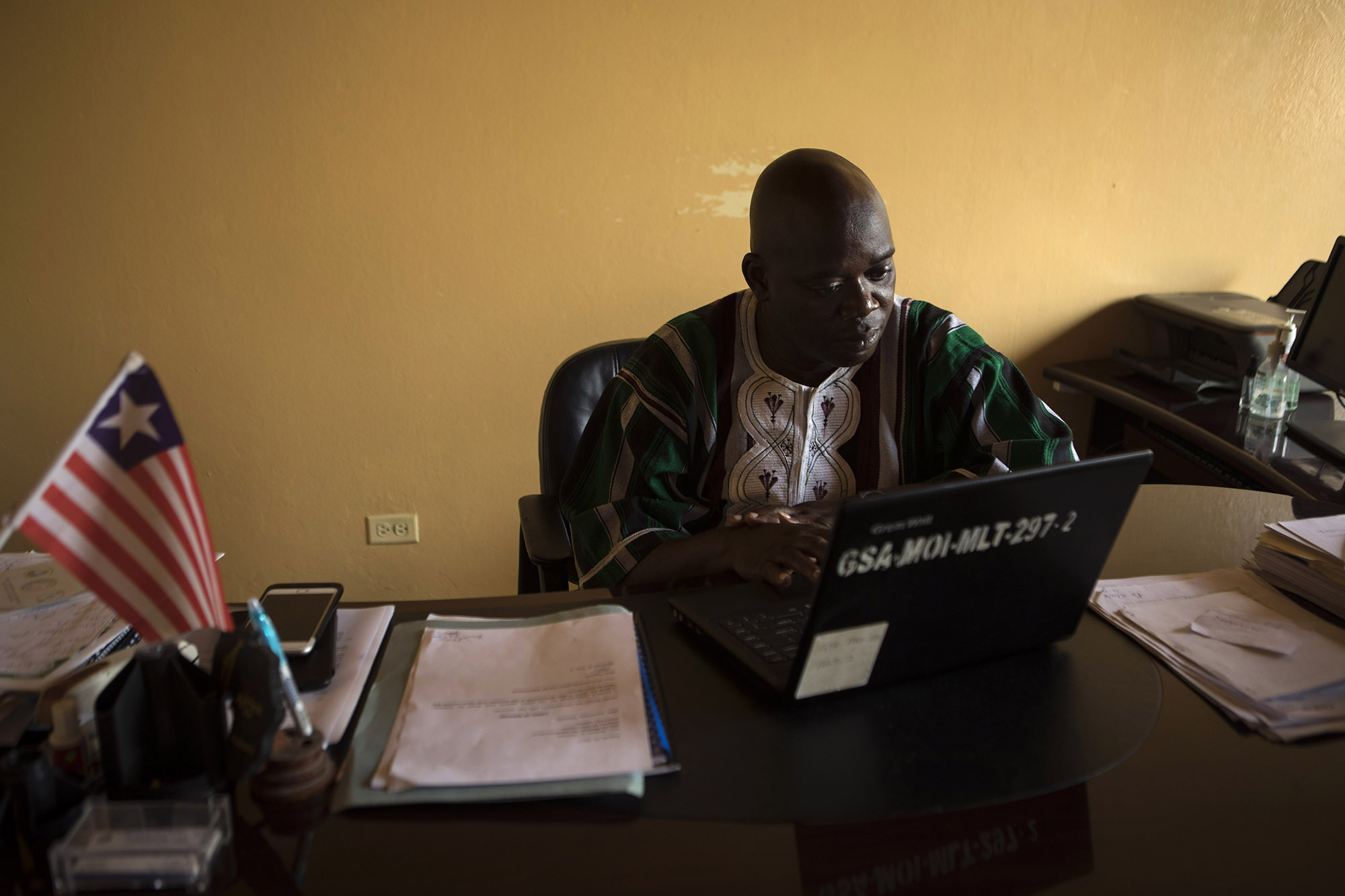
Andrew G. Temeh, Deputy Minister of Administration at the Ministry of Information (MICAT) and the OGP Focal Person, works at his desk. Minister Temeh is working with OGP to create better transparency and accountability in the government. Liberia joined OGP in 2011. Photo by Sarah Grile.
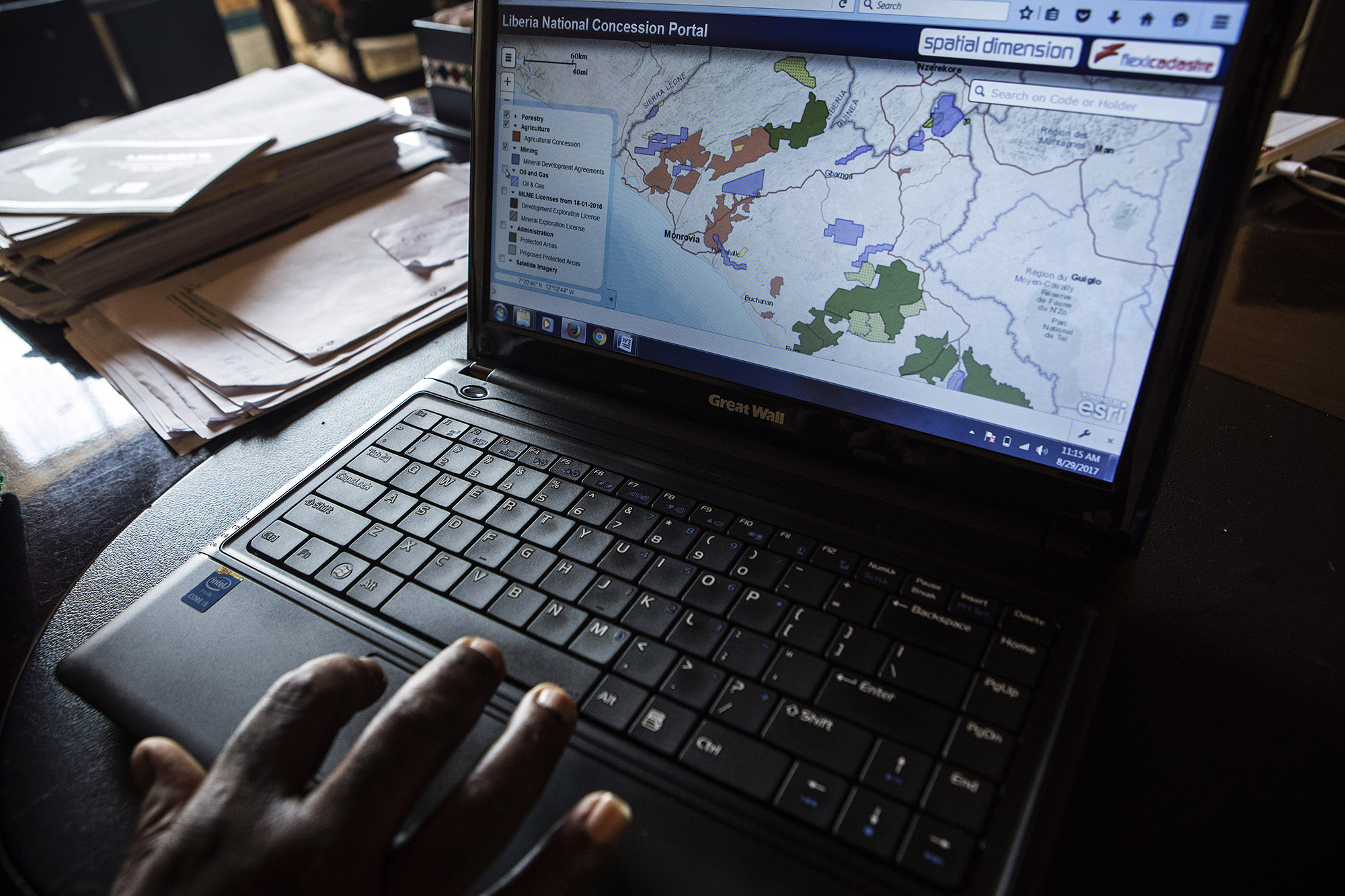
Andrew G. Temeh, Deputy Minister of Administration at the Ministry of Information (MICAT) and the OGP Focal Person, works at his desk on Tuesday, Aug. 29. Minister Temeh is working with OGP to create better transparency and accountability in the government. Liberia joined OGP in 2011. Photo by Sarah Grile.
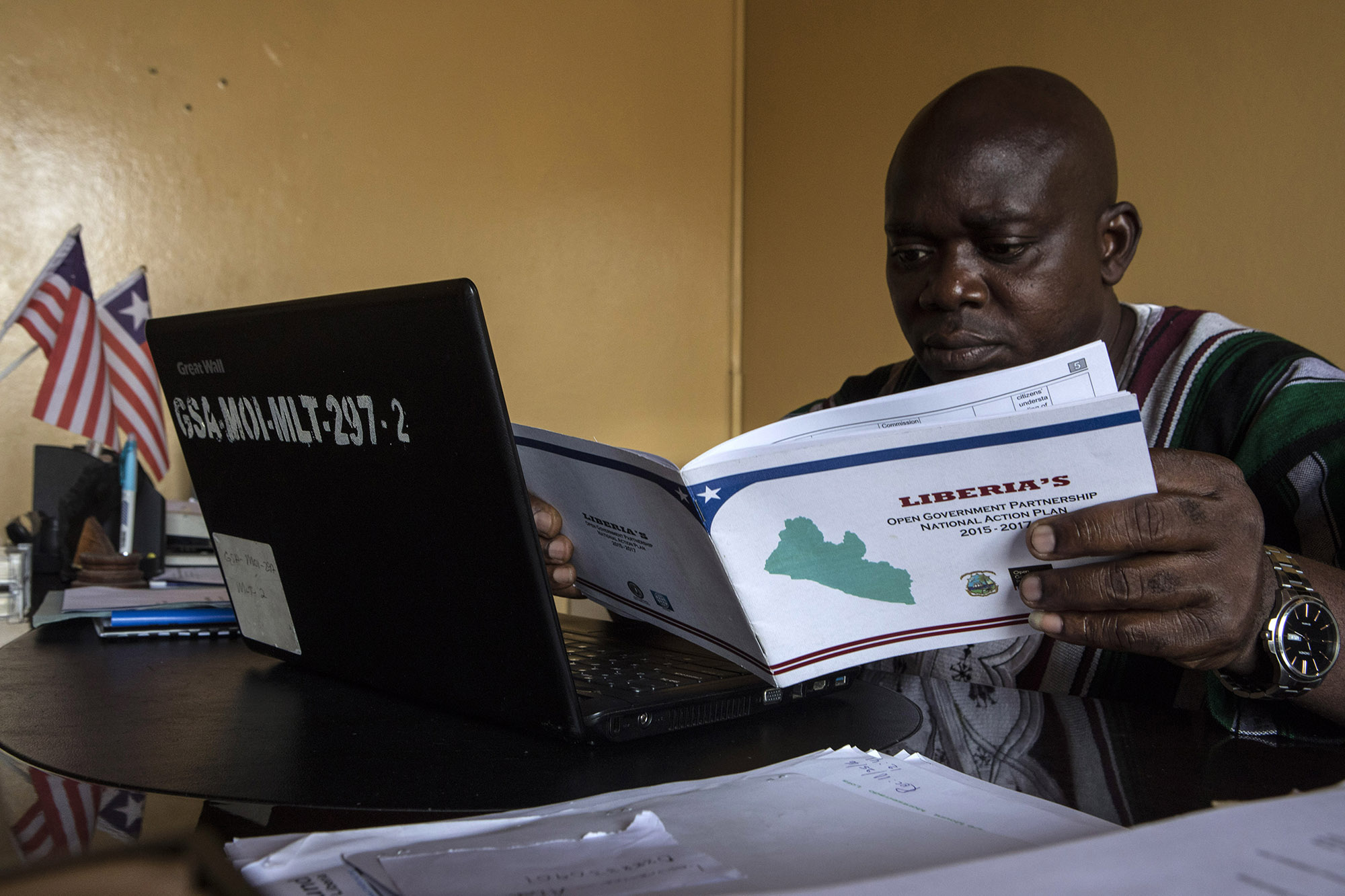
Andrew G. Temeh, Deputy Minister of Administration at the Ministry of Information (MICAT) and the OGP Focal Person, works at his desk on Tuesday, Aug. 29. Minister Temeh is working with OGP to create better transparency and accountability in the government. Liberia joined OGP in 2011.
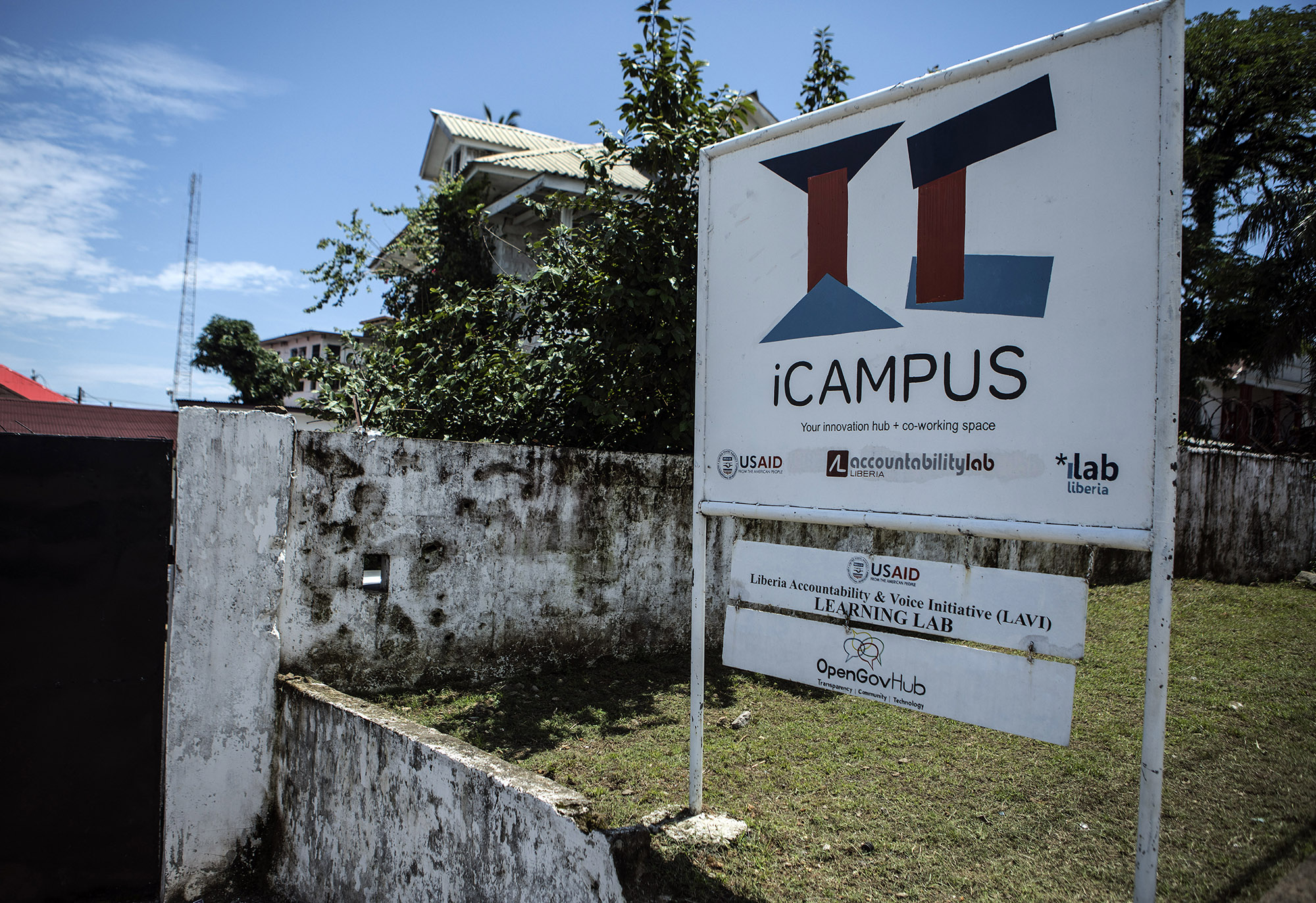
The Accountability Lab building located inside the iCampus in Monrovia, Liberia. iCampus is a shared working space for organizations who focus on technology, accountability and social change in Liberia. It is a focal point for open governance work. Photo by Sarah Grile.
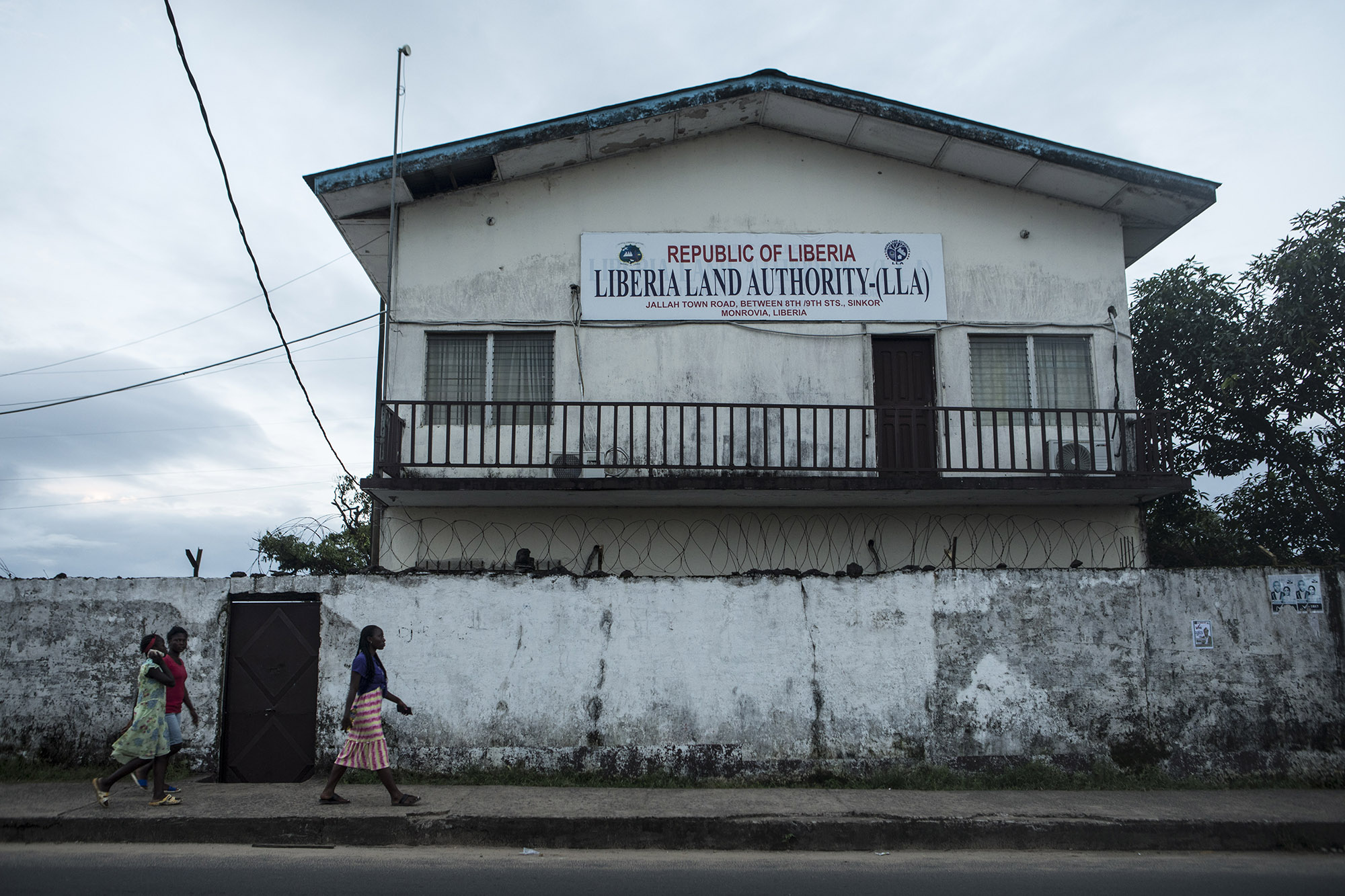
The Liberia Land Authority building located in Monrovia, Liberia. Photo by Sarah Grile.
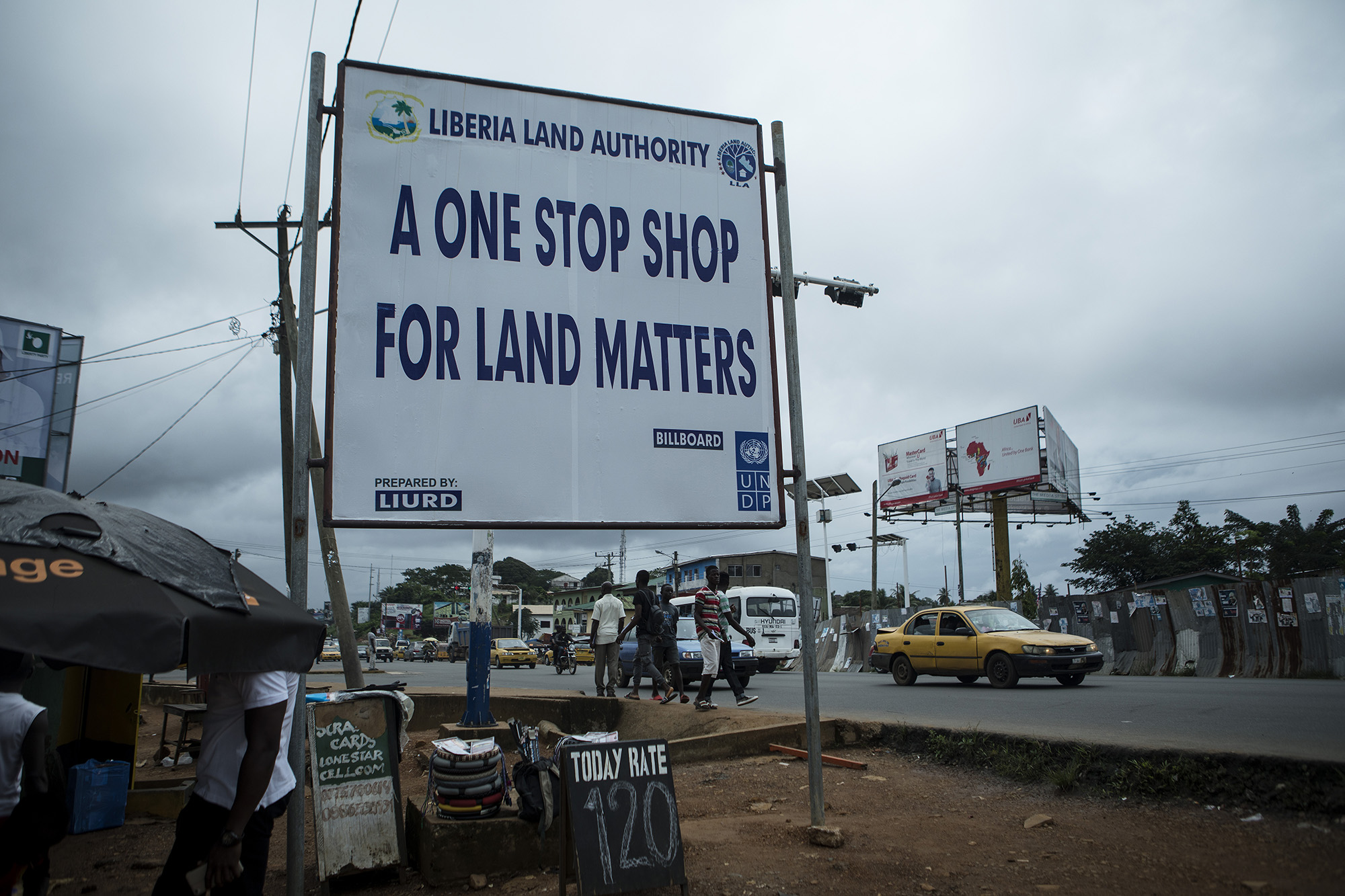
A Liberia Land Authority billboard is seen here on Tubman Blvd. in Monrovia. Photo by Sarah Grile.
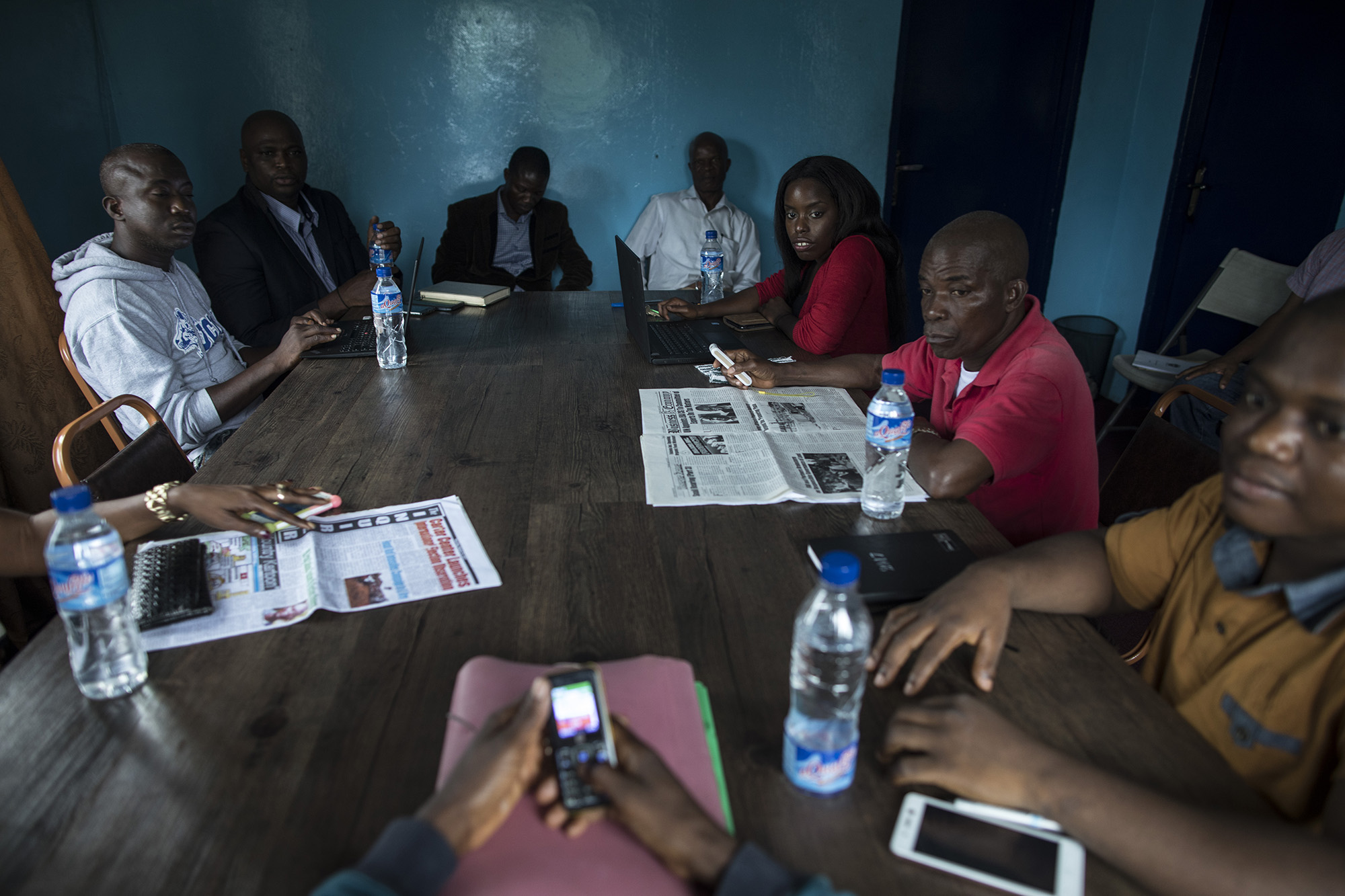
The Civil Society Organization (CSO) Working Group on Land Rights in Liberia come together to discuss the language of the current draft of the Land Rights Act. The CSO working group has been working towards getting the bill passed since it was introduced in 2013. The Land Rights Act will make it so that there is a separation between private land, government land and community land. Photo by Sarah Grile.
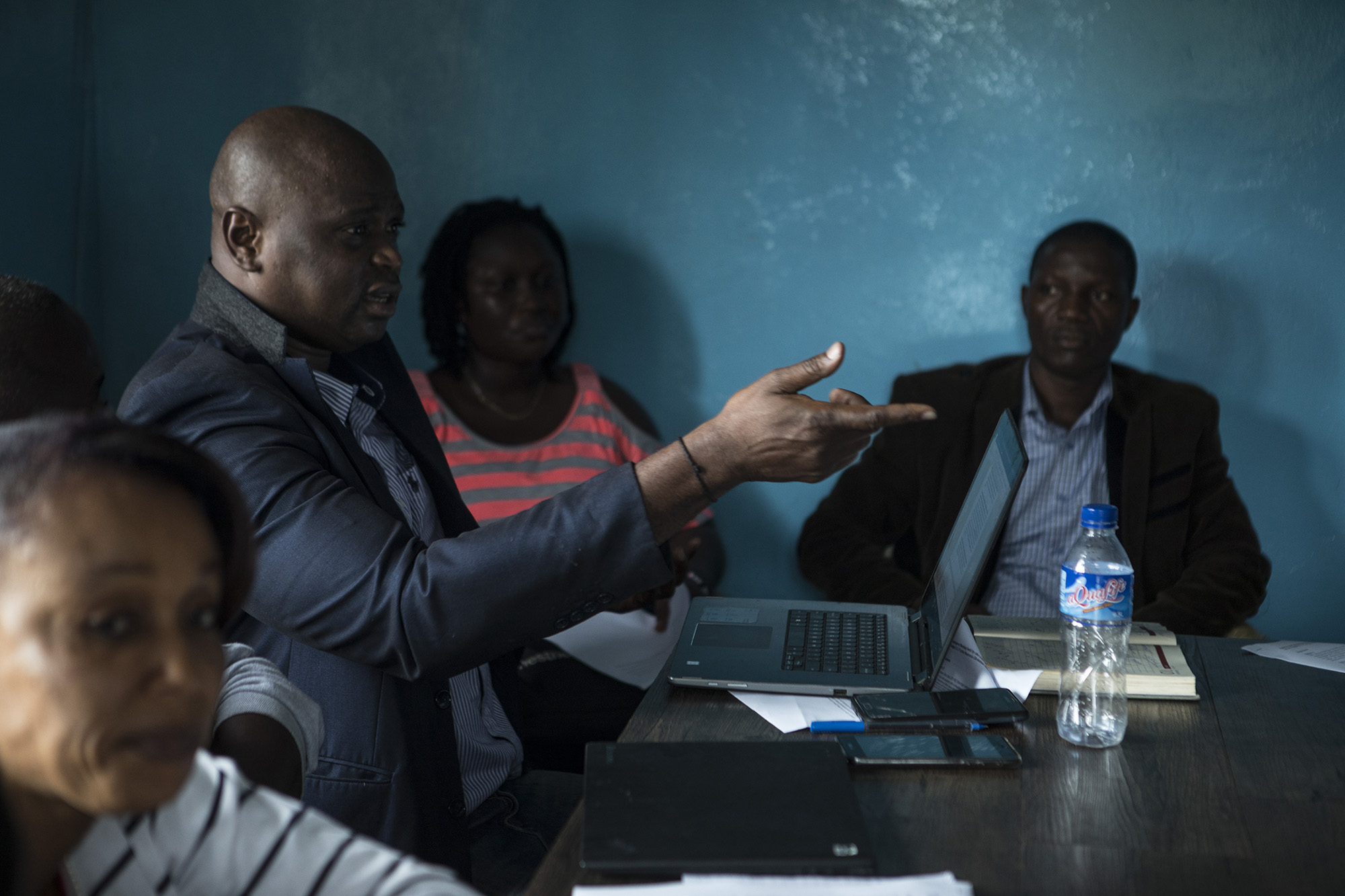
The Civil Society Organization (CSO) Working Group on Land Rights in Liberia come together to discuss the language of the current draft of the Land Rights Act. The CSO working group has been working towards getting the bill passed since it was introduced in 2013. The Land Rights Act will make it so that there is a separation between private land, government land and community land. Photo by Sarah Grile.
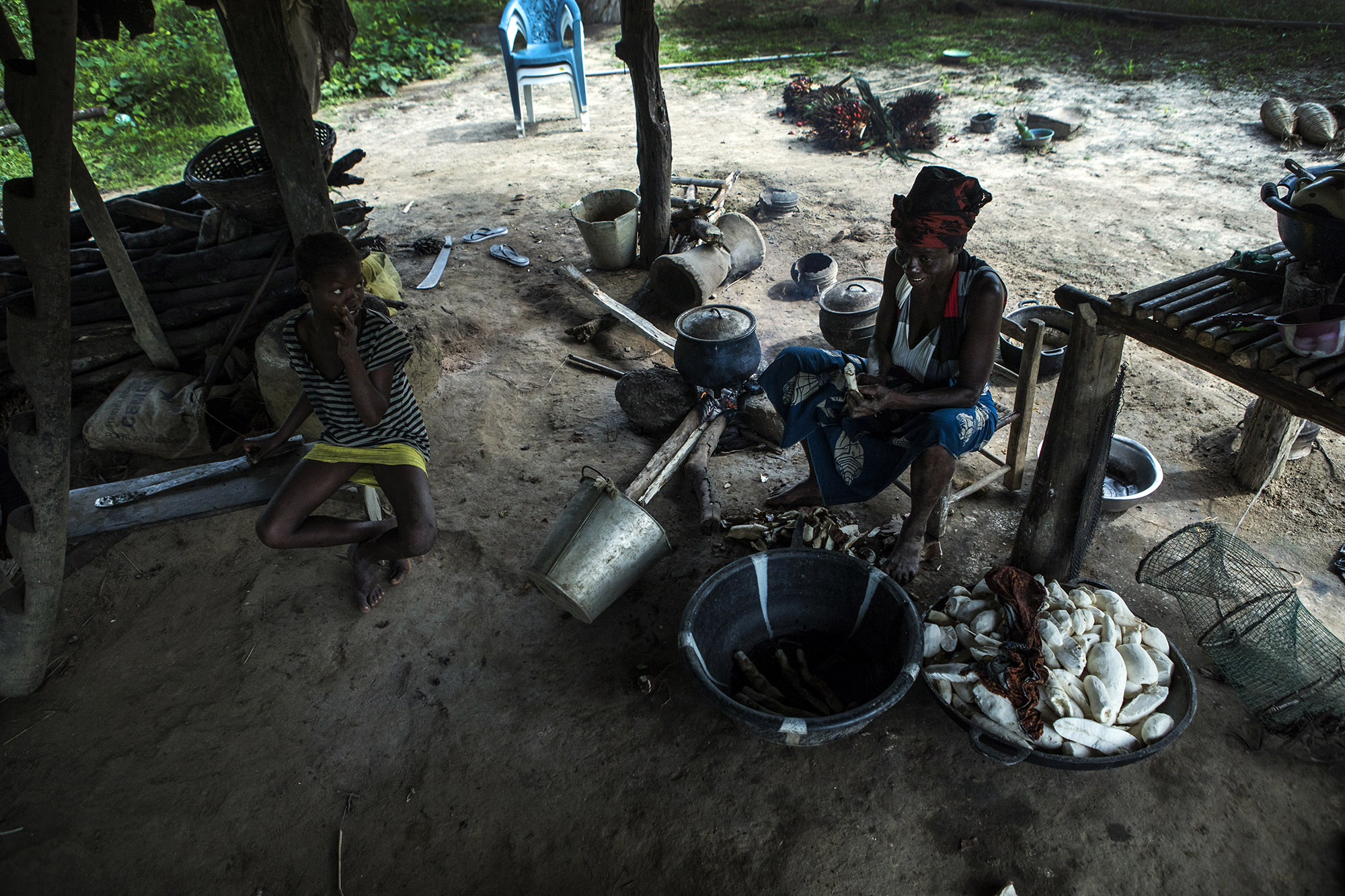
Sarah Banwon, right, the wife of Garmondah Banwon's, an elder in the Jogbahn Clan, prepares a meal in their kitchen in Blayah Town. The Jogbahn Clan fought against the British-owned company Equatorial Palm Oil (EPO) when they tried to take over their land in 2013. The people in the community depend on the land for their livelihoods. The Sustainable Development Institute (SDI) started to help the community by submitting a formal complaint to the to the Roundtable on Sustainable Palm Oil (RSPO). SDI taught the clan about land rights and resisting with non-violence. THE RSPO determined that the land EPO was using belonged to the clan. SGI trained the community how to map their land and boundaries were created that EPO accepted not to cross. Photo by Sarah Grile.
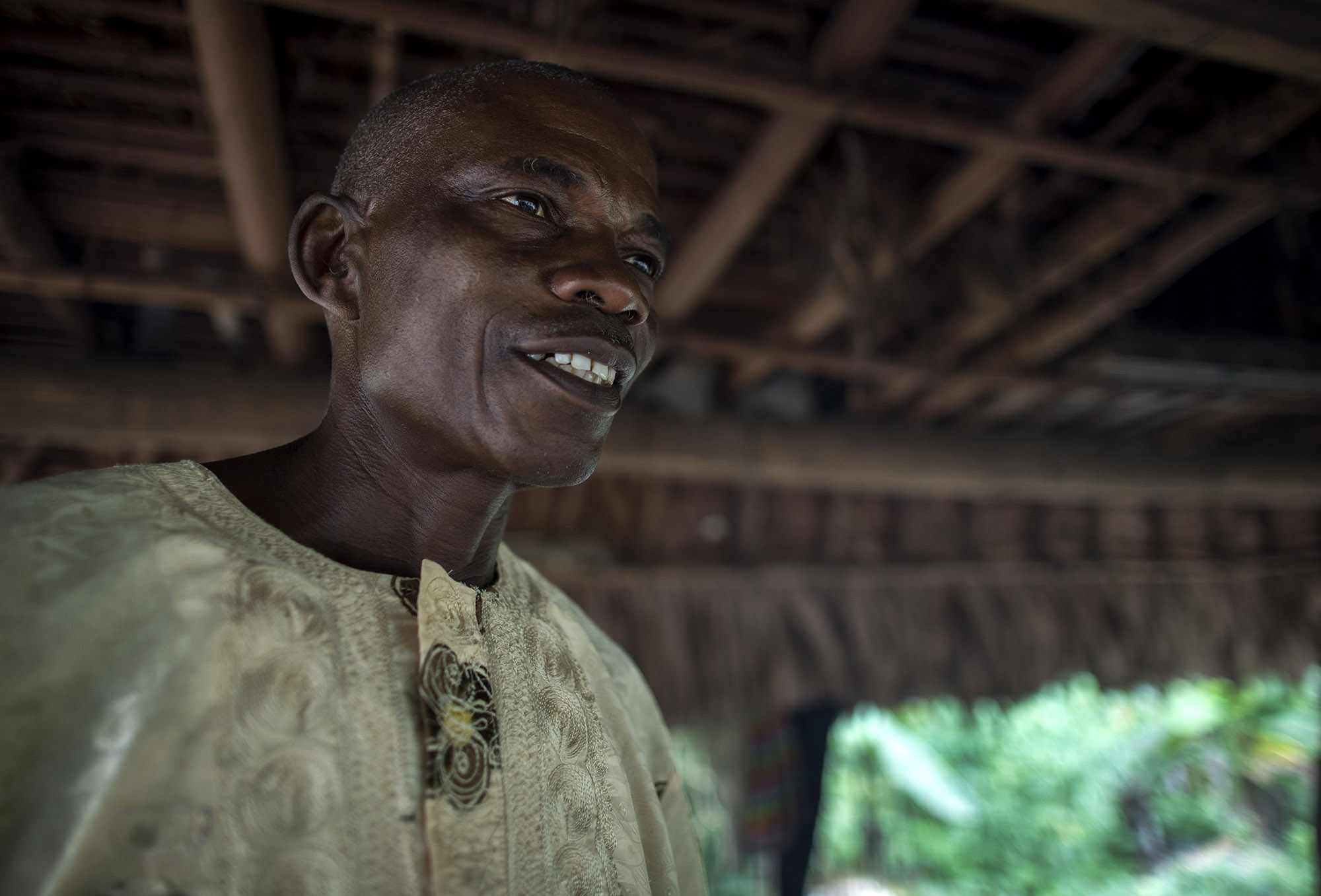
Garmondah Banwon, an elder in the Jogbahn Clan, stands in his kitchen in Blayah Town. The Jogbahn Clan fought against the British-owned company Equatorial Palm Oil (EPO) when they tried to take over their land in 2013. The people in the community depend on the land for their livelihoods. The Sustainable Development Institute (SDI) started to help the community by submitting a formal complaint to the to the Roundtable on Sustainable Palm Oil (RSPO). SDI taught the clan about land rights and resisting with non-violence. THE RSPO determined that the land EPO was using belonged to the clan. SGI trained the community how to map their land and boundaries were created that EPO accepted not to cross. Photo by Sarah Grile.
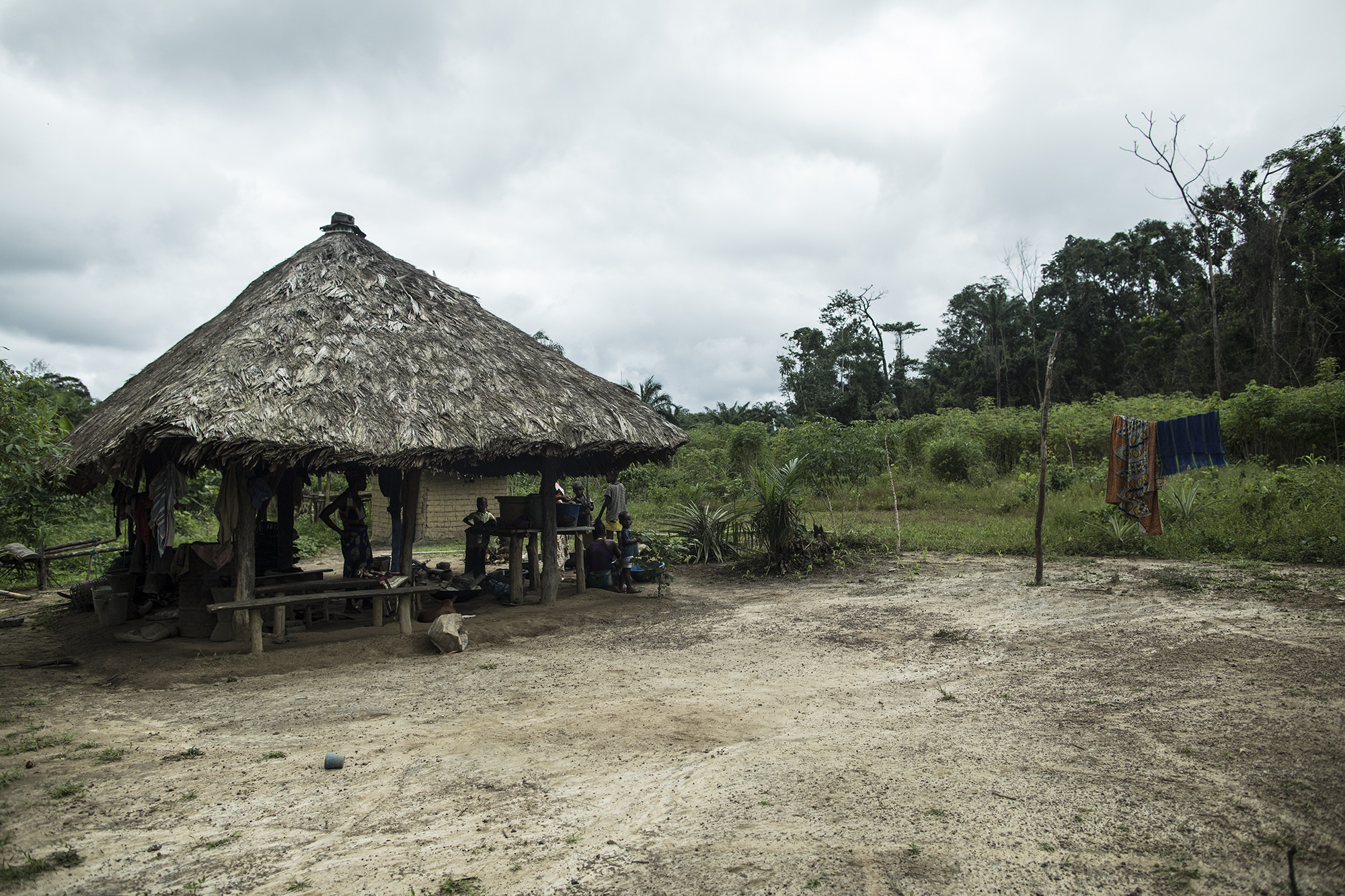
Sarah Banwon, right, the wife of Garmondah Banwon's, an elder in the Jogbahn Clan, prepares a meal in their kitchen in Blayah Town. The Jogbahn Clan fought against the British-owned company Equatorial Palm Oil (EPO) when they tried to take over their land in 2013. The people in the community depend on the land for their livelihoods. The Sustainable Development Institute (SDI) started to help the community by submitting a formal complaint to the to the Roundtable on Sustainable Palm Oil (RSPO). SDI taught the clan about land rights and resisting with non-violence. THE RSPO determined that the land EPO was using belonged to the clan. SGI trained the community how to map their land and boundaries were created that EPO accepted not to cross. Photo by Sarah Grile.
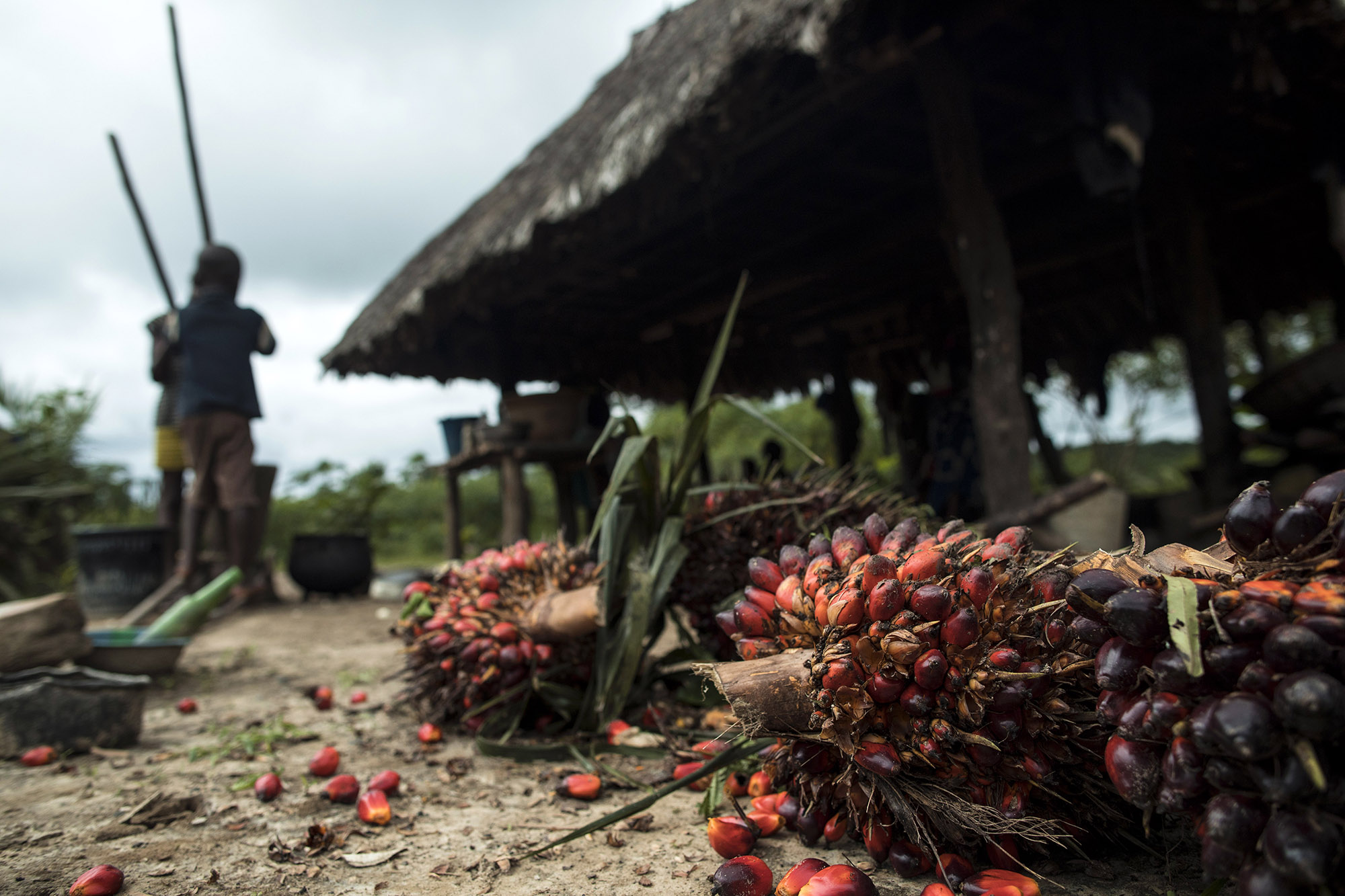
Fruits from palm trees lie in front of Garmondah Banwon's kitchen in Blayah Town. Banwon is an elder in the the Jogbahn Clan. The Jogbahn Clan fought against the British-owned company Equatorial Palm Oil (EPO) when they tried to take over their land in 2013. The people in the community depend on the land for their livelihoods. The Sustainable Development Institute (SDI) started to help the community by submitting a formal complaint to the to the Roundtable on Sustainable Palm Oil (RSPO). SDI taught the clan about land rights and resisting with non-violence. THE RSPO determined that the land EPO was using belonged to the clan. SGI trained the community how to map their land and boundaries were created that EPO accepted not to cross. Photo by Sarah Grile.
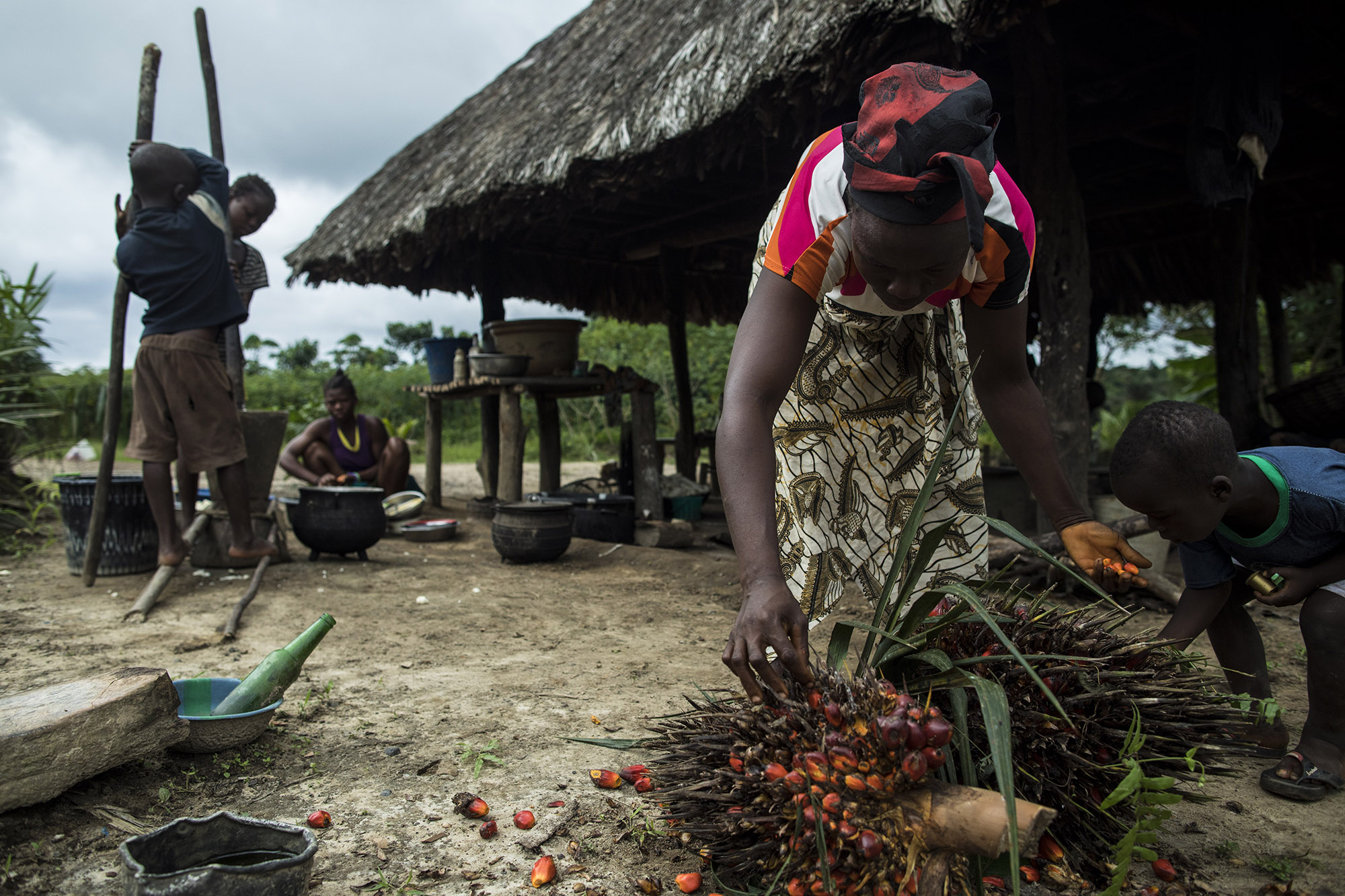
A woman eats fruit from a palm tree while in front of Garmondah Banwon's kitchen. Banwon is an elder in the Jogbahn Clan. The Jogbahn Clan fought against the British-owned company Equatorial Palm Oil (EPO) when they tried to take over their land in 2013. The people in the community depend on the land for their livelihoods. The Sustainable Development Institute (SDI) started to help the community by submitting a formal complaint to the to the Roundtable on Sustainable Palm Oil (RSPO). SDI taught the clan about land rights and resisting with non-violence. THE RSPO determined that the land EPO was using belonged to the clan. SGI trained the community how to map their land and boundaries were created that EPO accepted not to cross.
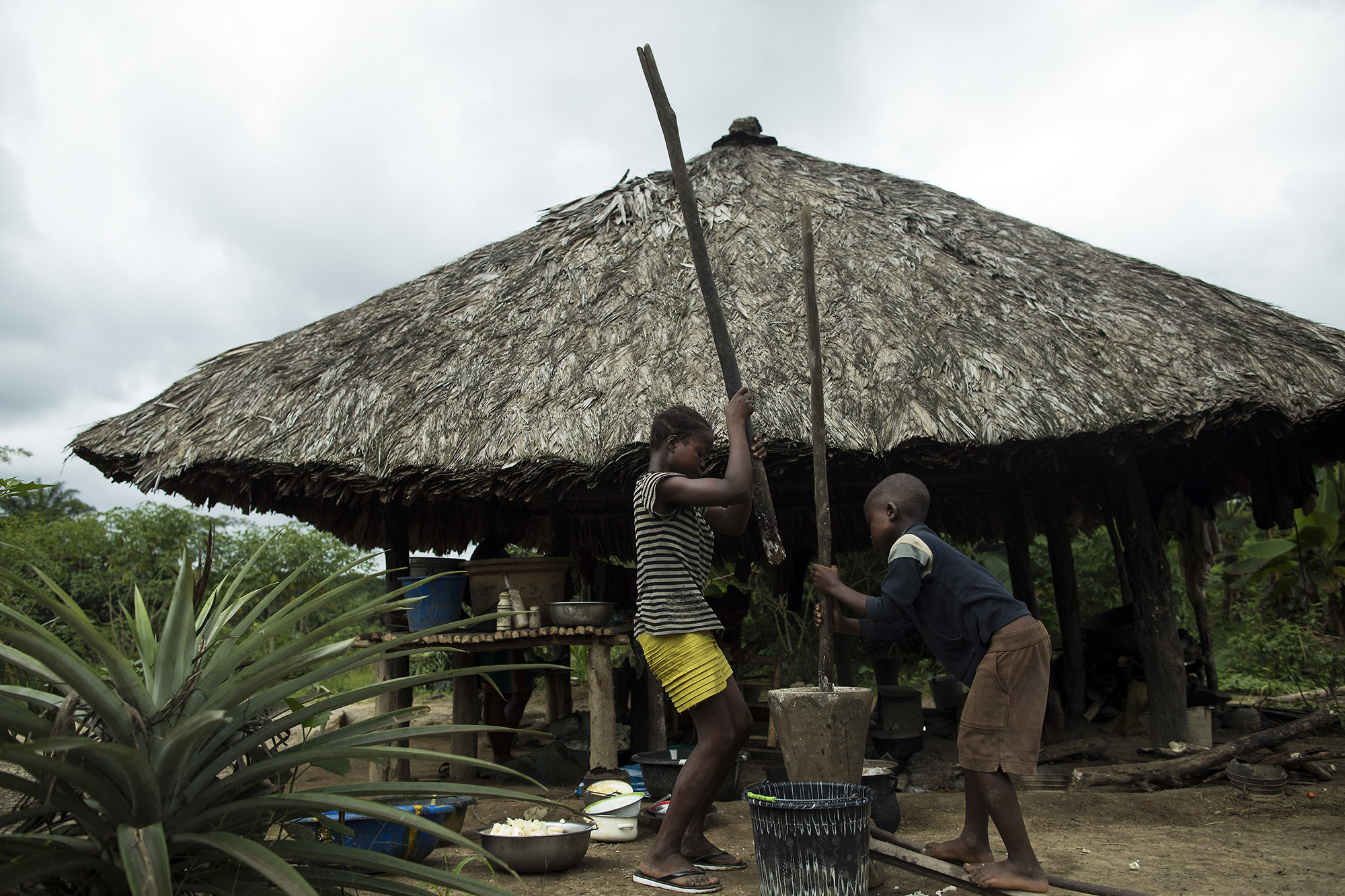
Family of Garmondah Banwon, an elder in the Jogbahn Clan, beat cassava in front of the family's kitchen in Blayah Town. The Jogbahn Clan fought against the British-owned company Equatorial Palm Oil (EPO) when they tried to take over their land in 2013. The people in the community depend on the land for their livelihoods. The Sustainable Development Institute (SDI) started to help the community by submitting a formal complaint to the to the Roundtable on Sustainable Palm Oil (RSPO). SDI taught the clan about land rights and resisting with non-violence. THE RSPO determined that the land EPO was using belonged to the clan. SGI trained the community how to map their land and boundaries were created that EPO accepted not to cross.
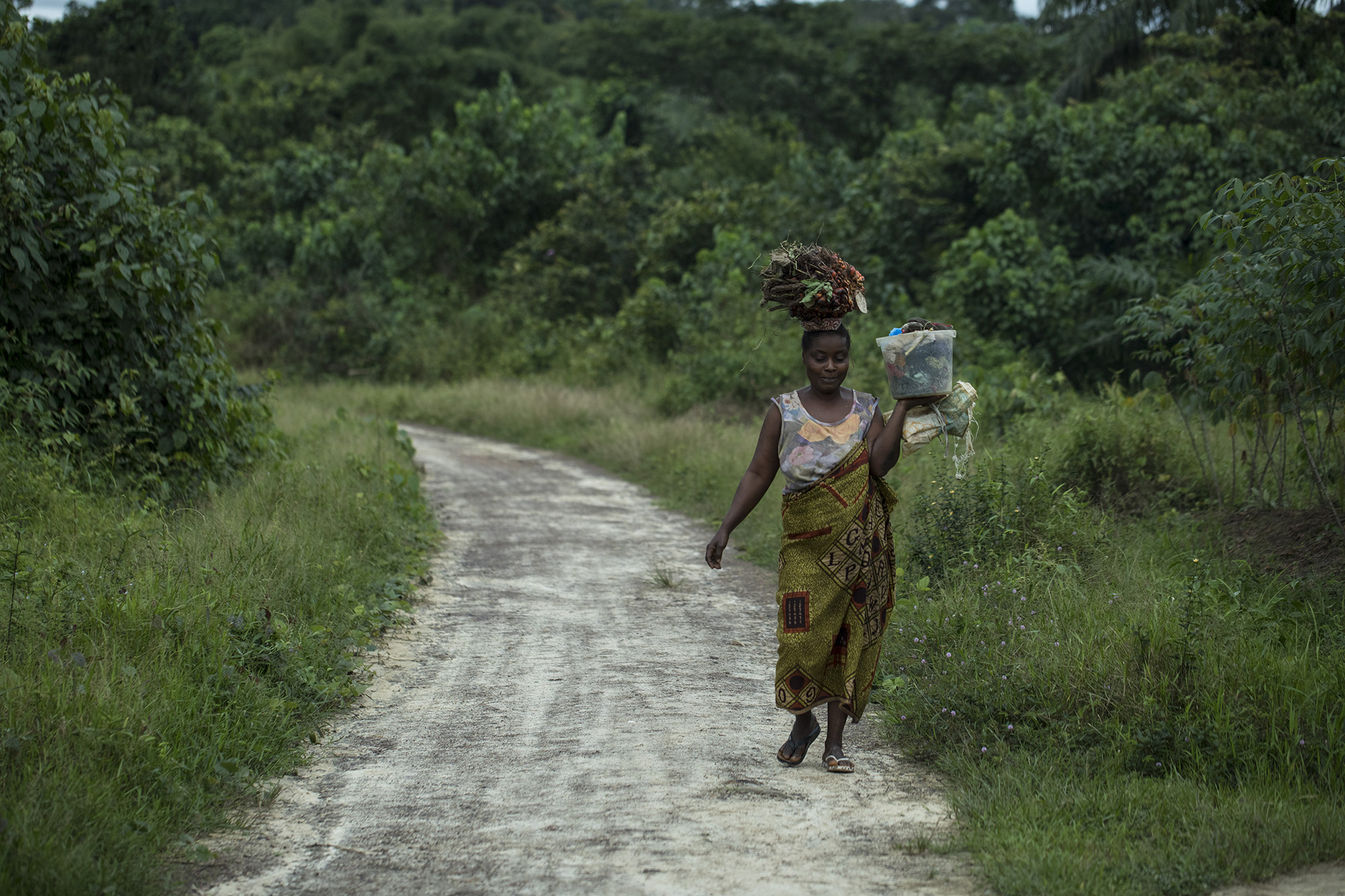
A woman walks down a road in Blayah Town, where the Jogbahn Clan reside. The Jogbahn Clan fought against the British-owned company Equatorial Palm Oil (EPO) when they tried to take over their land in 2013. The people in the community depend on the land for their livelihoods. The Sustainable Development Institute (SDI) started to help the community by submitting a formal complaint to the to the Roundtable on Sustainable Palm Oil (RSPO). SDI taught the clan about land rights and resisting with non-violence. THE RSPO determined that the land EPO was using belonged to the clan. SGI trained the community how to map their land and boundaries were created that EPO accepted not to cross.
